

Essay Writing for Beginners: 6-Step Guide with Examples
If you need to write an essay, whether for a college course or to pass a writing test, this guide will take you through the process step-by-step.
Even if you have never written an essay before, this guide will make the process simple and easy to follow.
It is divided into two parts.
First, I’ll show you the steps of writing an essay from scratch using a simple example.
And in the second part, we’ll go through the process together and write a complete sample essay.
Let’s dive right in.
Writing an essay is a 6-step process.
Step 1. Decide on your main point and write it down
You could be in one of the following situations:
- Your teacher or professor gave you a prompt, and you have to follow it
- You are allowed to make up your own essay topic
- You must pass a writing test and are practicing
Whatever the case, let’s assume that you have some kind of a topic or an idea for an essay. Many essay prompts ask you to decide for or against an idea. You must agree or disagree.
And in your first step, you need to simply make that decision – whether you agree or disagree – and just write it down as a simple sentence.
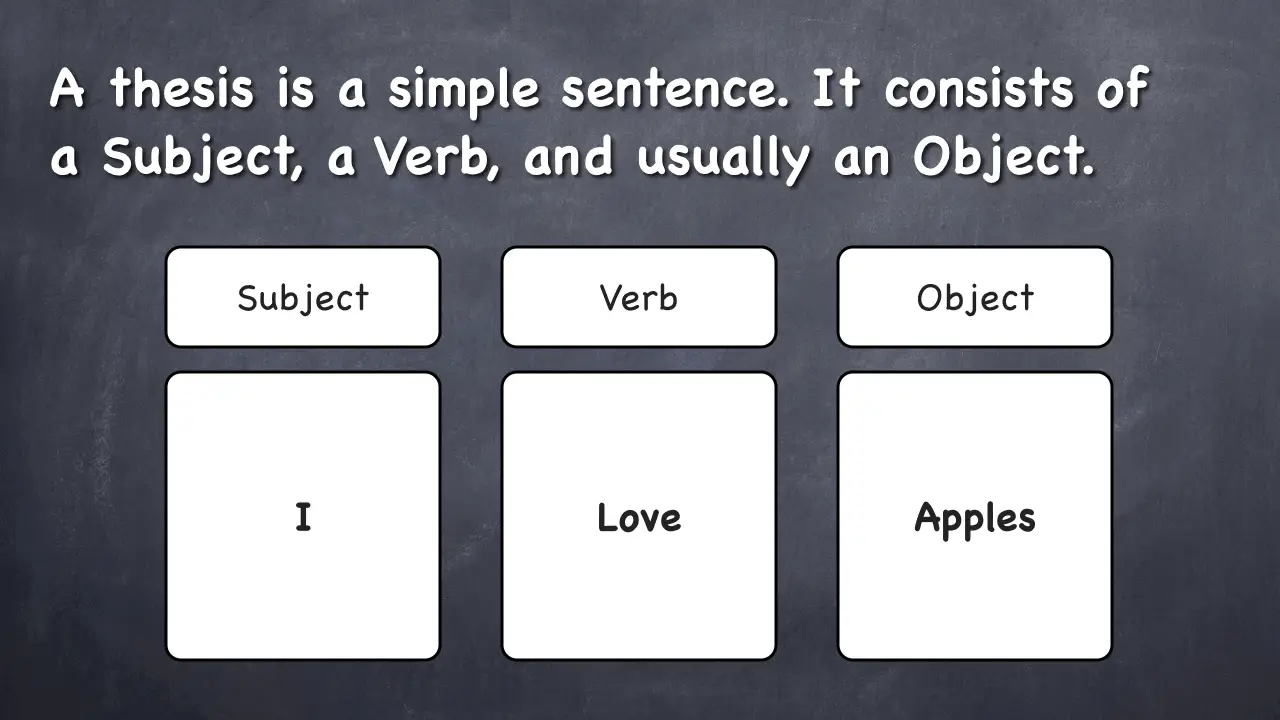
This is a very simple example, but it shows you what a thesis essentially looks like. It is also your main point.
Try not to make your thesis sentence too complicated. Keep it simple so that the point is perfectly clear to both you and the reader.
In this case, our example thesis is:
And we’re ready for the next step.
Step 2. Come up with three supporting ideas
Whether you need to write 300 or 3,000 words, as a beginner you only need three supporting points to prove your main point.
This is why I teach the Power of Three.
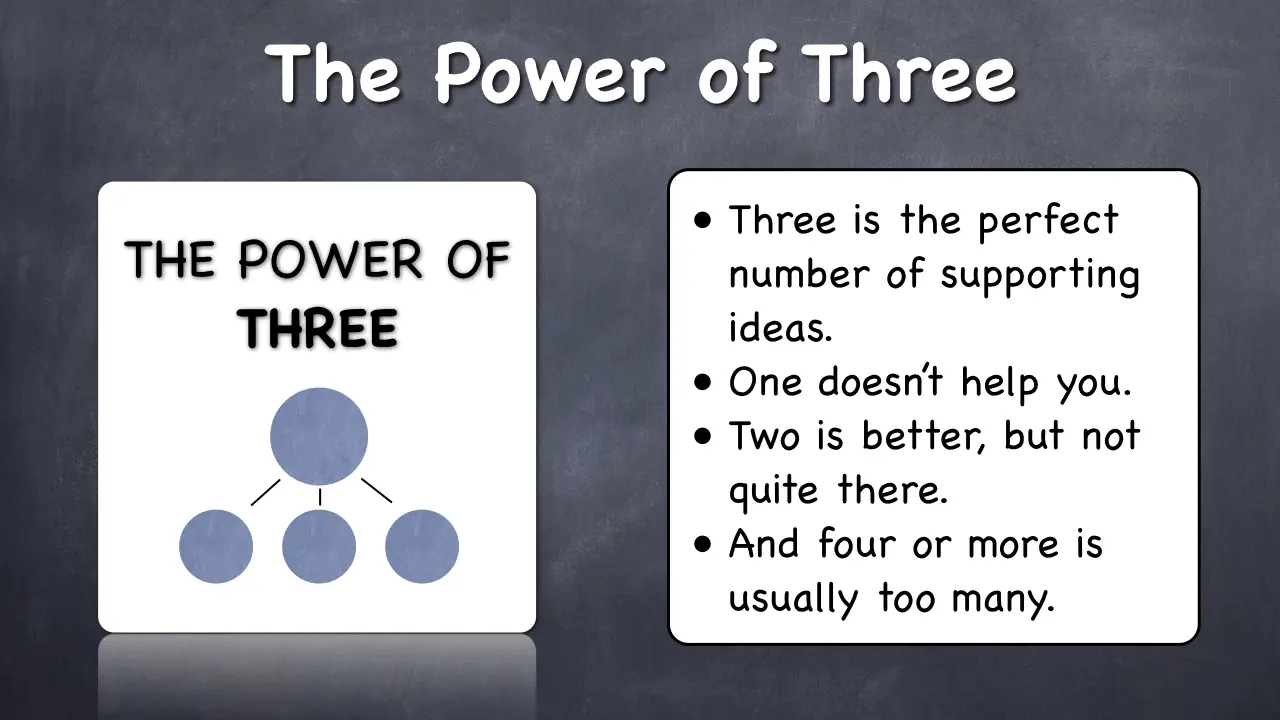
So, why three? You see, you need to divide your topic into subtopics. If you don’t, the whole essay writing process will be harder than it has to be.
If you divide it into only two parts, that’s okay. But it doesn’t give you enough meat when you’ll be writing the body of the essay.
If you divide it into more than three, that is also a recipe for frustration. It’s just too many.
Three is a very comfortable number for the brain to deal with. Trust me. I’ve taught many, many people.
Let’s apply the Power of Three to our simple example.
Why do I love apples? I love them for three reasons. Not one, not two, not seven. Just three reasons.
I love apples because they are:
- Nutritious
In this step, your job is to make sure that these three reasons are really different from one another. In this case, they are.
Here is a wrong way to do it:
In this case, apples being filling is too similar to being nutritious. This means that when you’re writing the body of the essay, you may run into writer’s block.
This happens because you realize that you’ve already said everything there is to say about the nutrition of apples, and now them being filling is too closely related. And you’re out of words to write.
Don’t let that happen. Just keep your supporting points really distinct from one another.
Step 3. Write out the complete thesis statement
Now you have everything you need to write a complete thesis statement. You have your main and supporting points.
Take them and write them out as complete sentences in one paragraph. Let’s do it very simplistically, using our apples example:
Again, this is overly simple, and I don’t expect you to write such short sentences one after another this way.
But it’s crystal clear. And the supporting points really sound like good evidence for the main point.
In other words, this thesis statement works.
Your Thesis Statement Is Also Your Outline
Students often ask how to write an essay outline. But once you have written your thesis statement the way I just showed you, you have yourself a nice outline.
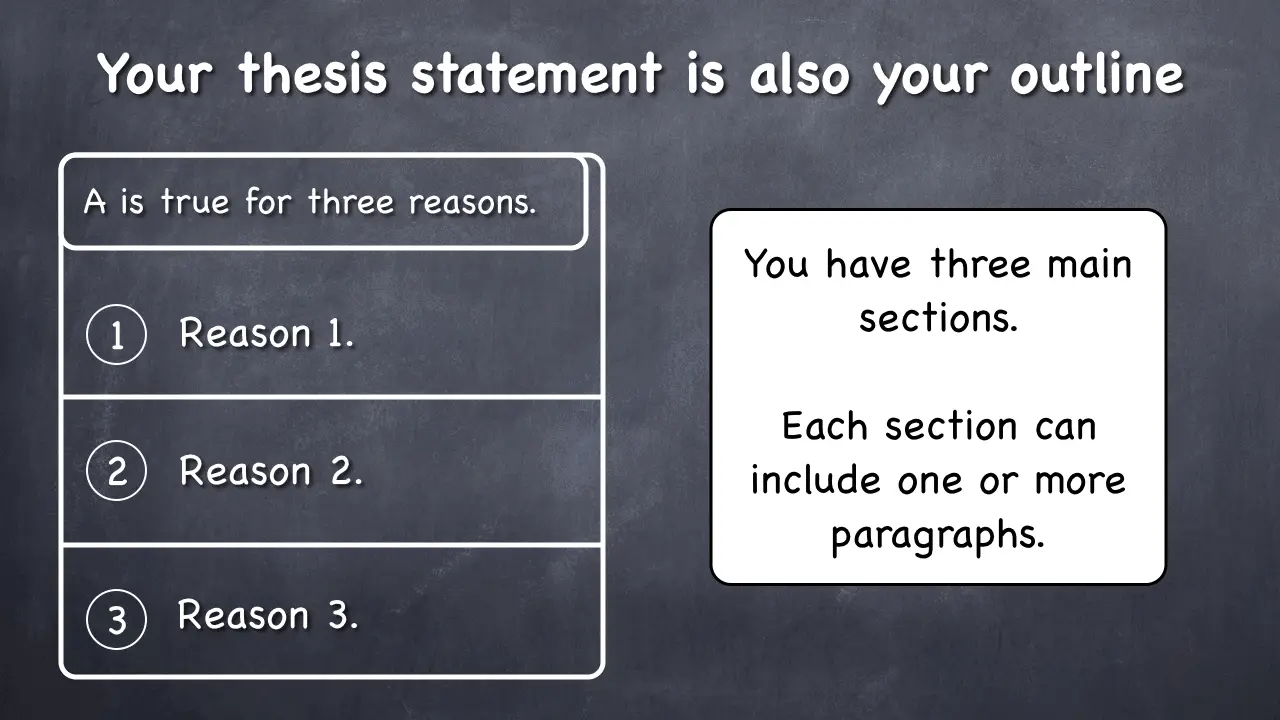
In addition, you already have the first paragraph. It may not be complete. You may choose to add some words to it. You will also add an introduction in a later step.
But your first paragraph is, for the main, done. It exists, and it’s good to know that you just wrote a nice paragraph.
We are ready for the next step.
Step 4. Write the body of the essay
We already know that we have three sections in our little example. And you will also have three main sections if you apply the Power of Three to your essay.
Each of your sections will contain one or more paragraphs.
But as a beginner, just stick to one paragraph per section. Each of your sections will be a paragraph, and you need to write only three paragraphs in the body of the essay.
Body Paragraph Structure
You must begin each of your body paragraphs with a lead sentence (also known as a topic sentence). And then your job is to fill the rest of the paragraph with evidence to support what you just stated in the lead sentence.
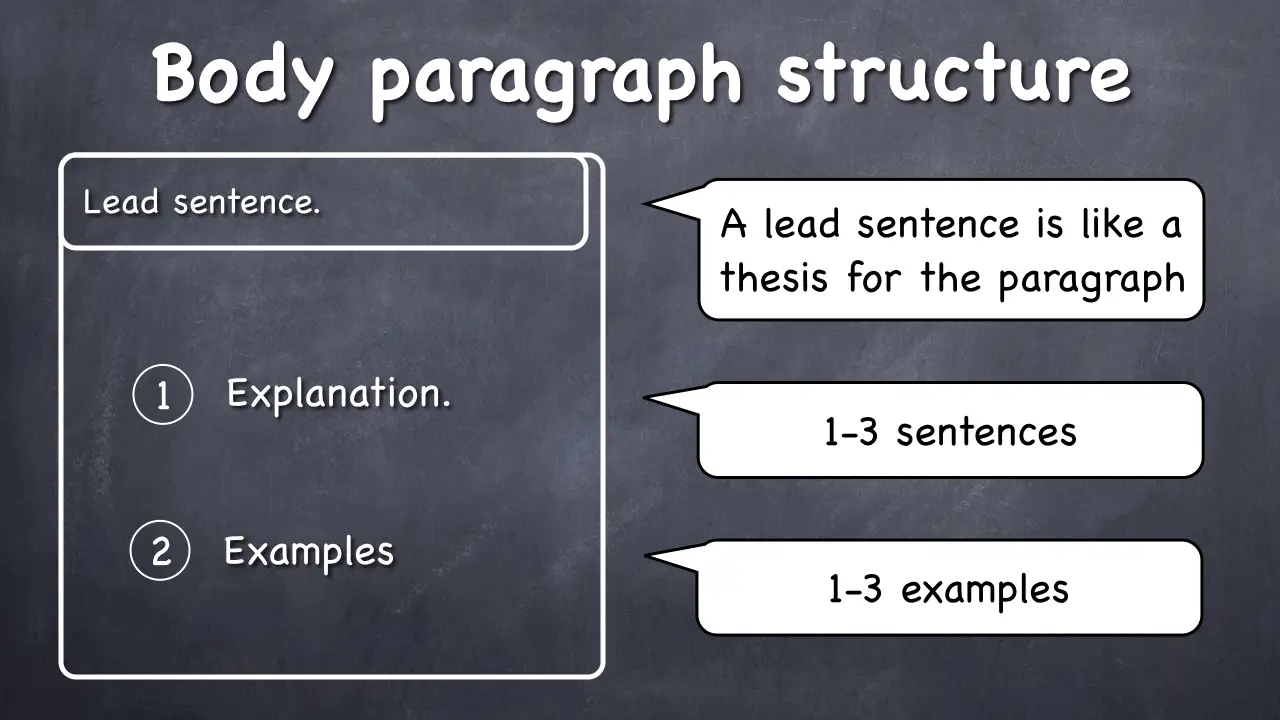
You may have heard that in your essay you should proceed from more general to more specific ? That is exactly right.
The lead sentence (the first sentence in the paragraph) is the most general statement in that paragraph.
For example, in our essay about apples, the second section is about how nutritious apples are. So, you would begin your paragraph with something like this:
This is the most general statement. And now, your job would be to unpack that, to write a little more specifically.
As an explanation , you can write a sentence or two on what kinds of nutrients apples contain.
And as examples , you can write about what some of these nutrients do in the body that makes them nutritious.
Does this make sense? You are proceeding from general to specific. We’ll take a closer look at this process in the essay topic sample that is coming up.
Once you’ve written the body paragraphs, you’re ready for the next step.
Step 5. Write the introduction and the conclusion
Introductions.
The introduction is really just a sentence (two at most) that you add in the beginning of your first paragraph.
Introductions are not necessary. Many instructors will expect that you write them while others won’t. You can go straight to the point by starting your first paragraph with the thesis.
However, most instructors will expect an introduction, and you should know how to write one.
To write an introduction, just zoom out a bit and write a more general and less relevant sentence. For example, we can start our essay about apples with this sentence:
And then we proceed straight to the thesis: “I love apples.” And so on…
Conclusions
In your conclusion you can do one of several things. But I recommend that, as a beginner, you stick to the time-proven restatement .
Basically, you simply repeat what you stated in your thesis statement, using different words.
Yes, this is repetitious, but that is the nature of conclusions. Don’t worry.
You can literally copy your thesis statement, paste it at the end of your essay, and make sure you change the wording so that it reads like a new paragraph.
For example, this is how we can write our conclusion about apples:
Yes, your conclusion can be just one sentence. But it can also contain many sentences.
Step 6. Proofread
Our final step in writing an essay is to go back and proofread our draft.
We must look out for:
- Any contradictions (to make sure we don’t contradict our own points)
- Any irrelevant material (stuff that doesn’t belong in the essay at all)
- Grammatical errors
- Misspellings
One good, thorough round of proofreading can be enough to be ready to submit your essay for grading.
You can use a variety of tools sto spell-check your essay. Google docs is one great tool for that. But many others, such as Grammarly, are available as well.
Guess what! Now you know how to write an essay, even if you’re a beginner.
And now, let’s apply what we learned.
Let’s take a sample topic and follow the 6 steps to write a nice sample essay.
Let’s do this!
Sample Essay: “Parents are the best teachers.”
This essay topic came from one of my readers. Let’s develop it into an essay by following the steps we just learned.
Step 1. Decide on the main point and write it
Let’s say that we are given a choice – whether we agree or disagree that parents are the best teachers.
All we have to do is take a stand. We have to simply decide – yes or no.
Let’s decide that parents are indeed the best teachers.
We simply state this as the main point:
Step 2. Think up three supporting ideas
Why could parents be the best teachers?
This will take some thinking. But that’s what we need to do.
Let’s use the Power of Three . And here is what we came up with:
- They are the first teachers, and that’s very important.
- They have the child’s best interests in mind.
- They spend more time with their child than anyone else.
We really want to make sure that these supporting points are different from one another. Are they?
If we read them over, we’ll see that each of them is indeed distinct. Great!
Step 3. Write out the thesis statement
We have our main point. We have our supporting points. And writing the full thesis statement is now easy.
Let’s do it:
We really just took the thesis and the supporting statements and wrote them all in a sequence as one paragraph.
As a result, we now have a nice, clear opening paragraph.
We also now have our outline:
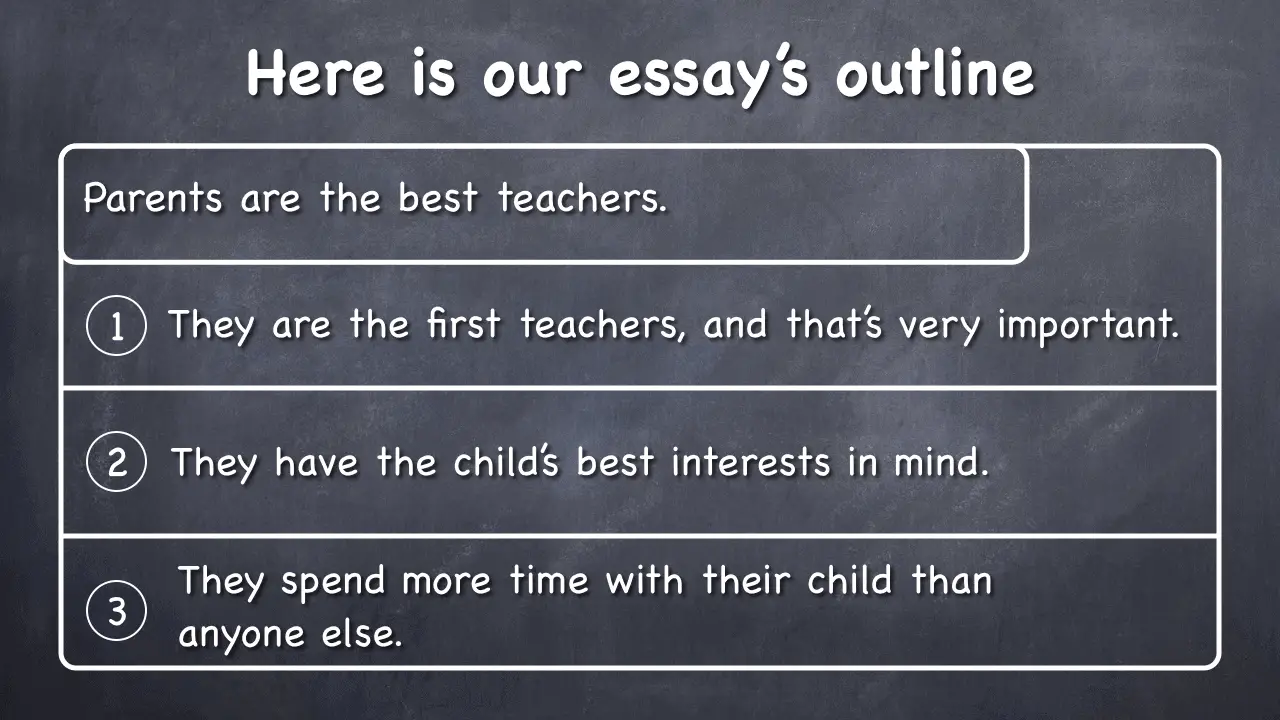
We know exactly how many sections our essay will have.
We also know in which order we’ll be presenting our support. It’s all in the thesis statement, which is also our outline.
Now our job is to write three good supporting paragraphs, one at a time.
Let’s start with the first body paragraph.
The first sentence is always the lead sentence – the most general sentence in a body paragraph.
Writing the Lead Sentence
Let’s first copy and paste our first supporting point from our thesis statement:
I copied this because this is exactly what my paragraph is about. And this would be a perfect lead sentence if it were not repetitious.
To make sure it’s not simply repetitious, we’ll tweak and expand it a little:
We made sure that the subject is clear – that it is not “ They ” but “ Parents .”
And we expanded the sentence by adding an explanation: “…because what is imprinted early stays with the child forever.”
You don’t have to necessarily add an explanation in the lead sentence like this. But this is an option that you have.
All we really want to do in the lead sentence is just expand it slightly over the initial supporting point that it came from.
Writing the Rest of the Paragraph
Let’s review our body paragraph structure:
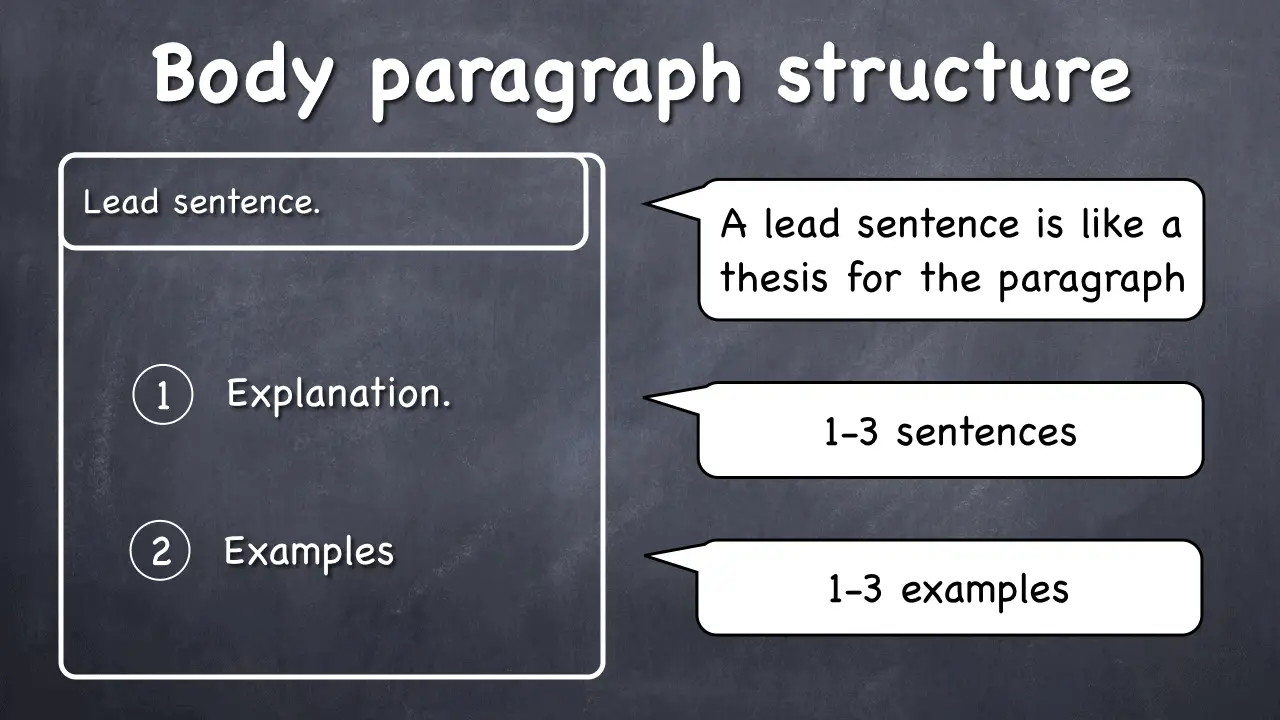
In our paragraph, we proceed from more general to more specific. Our lead sentence is the most general statement.
The next most general part of the paragraph is where you explain your point. You can provide a scientific explanation with data and research. You can explain it logically, using your own rationale.
But it is still a general part. Let’s write it.
Explanation
We are keeping it simple and not using any references to scientific studies. You can and should cite sources in your essay when necessary.
If you’re writing an essay in an exam or test, you won’t need any references. You can just make things up as you go along. And it works as long as your content is logical and supports the main point.
If you’re writing for a college course, you will likely need to cite sources, unless it’s English 101 where you write basic essays like this one.
But now, we have three explanatory sentences in our paragraph. Our next step is to add at least one example. You can add more, but one should do it for a beginner.
This example presents a phenomenon that is well known in psychology. It is an example because it describes one extreme kind of a phenomenon. It is also much more specific than our explanation.
Note that we can add more words by talking about a specific wild child from history. But let’s stop here and look at our full paragraph:
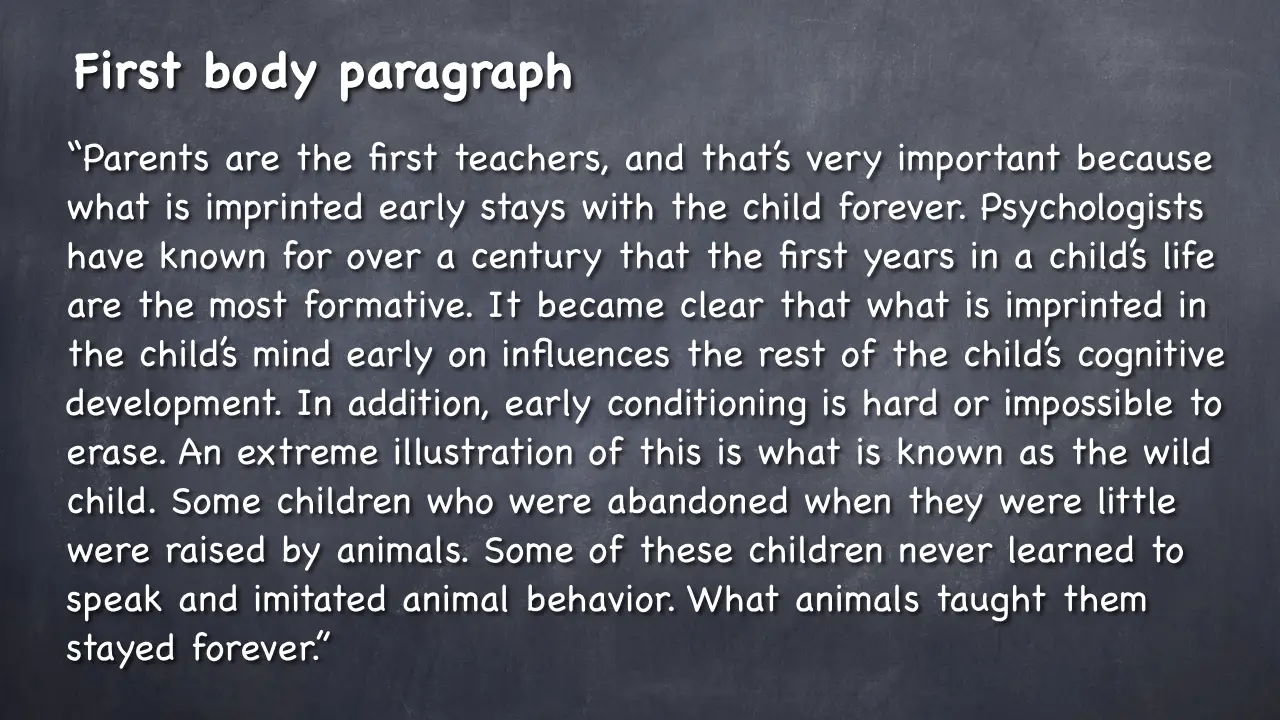
We have 113 words in this paragraph. And it’s a perfect body paragraph that supports the first part of our thesis statement.
Let’s write the next one.
Again, let’s copy the second supporting point and then tweak and expand it.
This sentence already starts with the subject, which is “ parents .” Now, all we need to do is to expand it slightly:
We added a short phrase just to make the lead sentence a little longer and more detailed. Now it doesn’t read like plain repetition.
Let’s write the next most general part of this paragraph – the explanation:
These three sentences explain why it makes sense that parents would have the child’s best interests in mind. She is the most precious thing to them in the world.
It’s time for an example. And I’ll use my personal experience:
It’s totally okay to use personal examples in an essay. You can use them even in advanced research papers. Your personal experience is valuable. Use it.
Let’s take a look at our second body paragraph in its entirety:
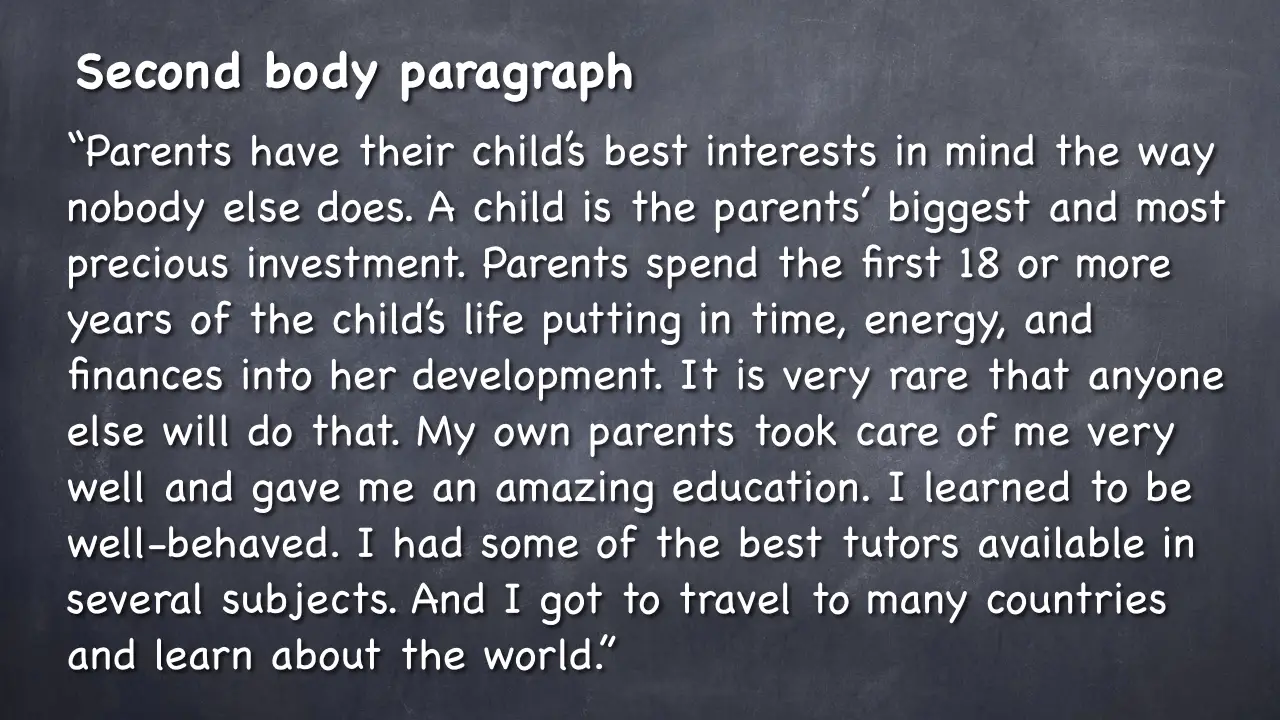
This paragraph contains 98 words of evidence to support the second point.
It’s time for the final body paragraph.
Again, you know what we’ll do. We’ll just copy our third supporting point and tweak and expand it a little:
Let’s make sure the reader knows what the real subject is in this sentence. And let’s also expand it just a bit:
Great! It’s time for the explanatory part:
Again, we won’t be citing any sources here and will keep it simple. This explanation works really well because it provides evidence for the third supporting point.
Let’s be even more specific and write at least one example.
Again, I’m using a personal example to show that whoever spends the most time with the child will have the most influence.
And let’s take a look at our third body paragraph as a whole:
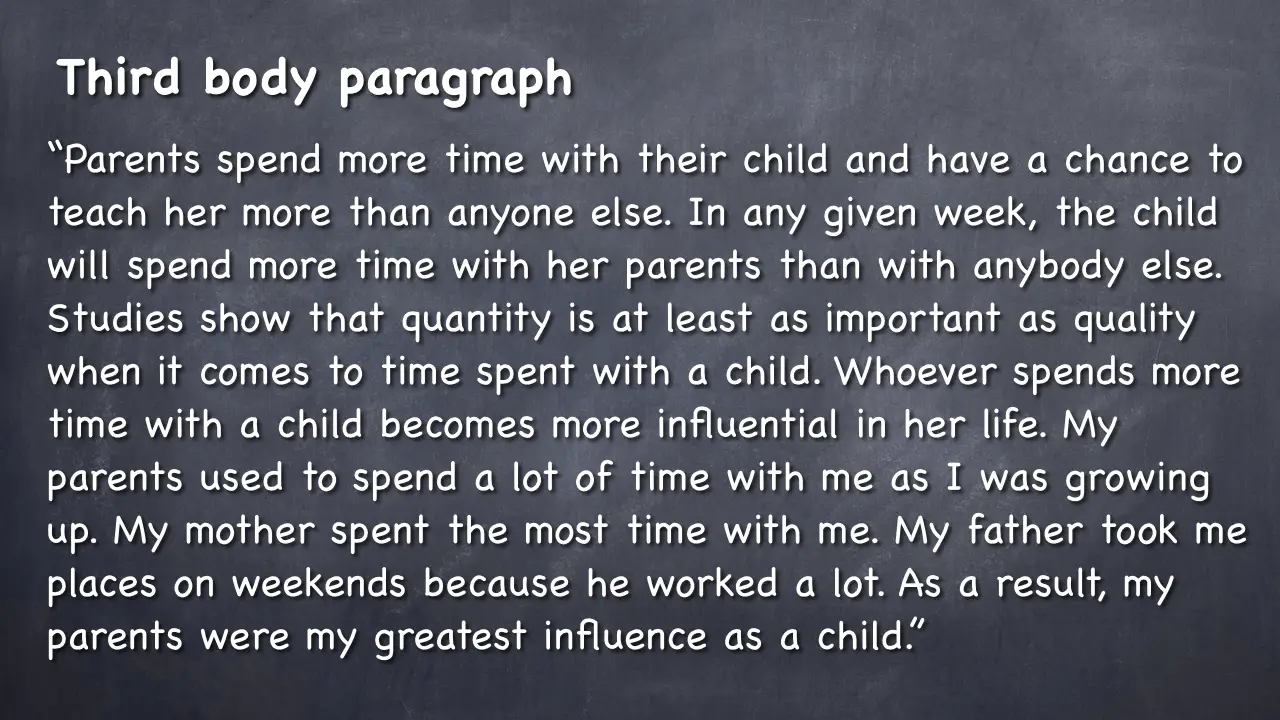
We have here 116 words of great, general-to-specific content that supports our third point.
As a result, if we look back at what we’ve done, we’ll see that everything we wrote in the body paragraphs supports the main point that parents are the best teachers.
It’s time for the next step.
Introduction
Our introduction will be just one sentence, which is enough.
First, let’s revisit our complete thesis statement. We will write the introductory sentence based on it.
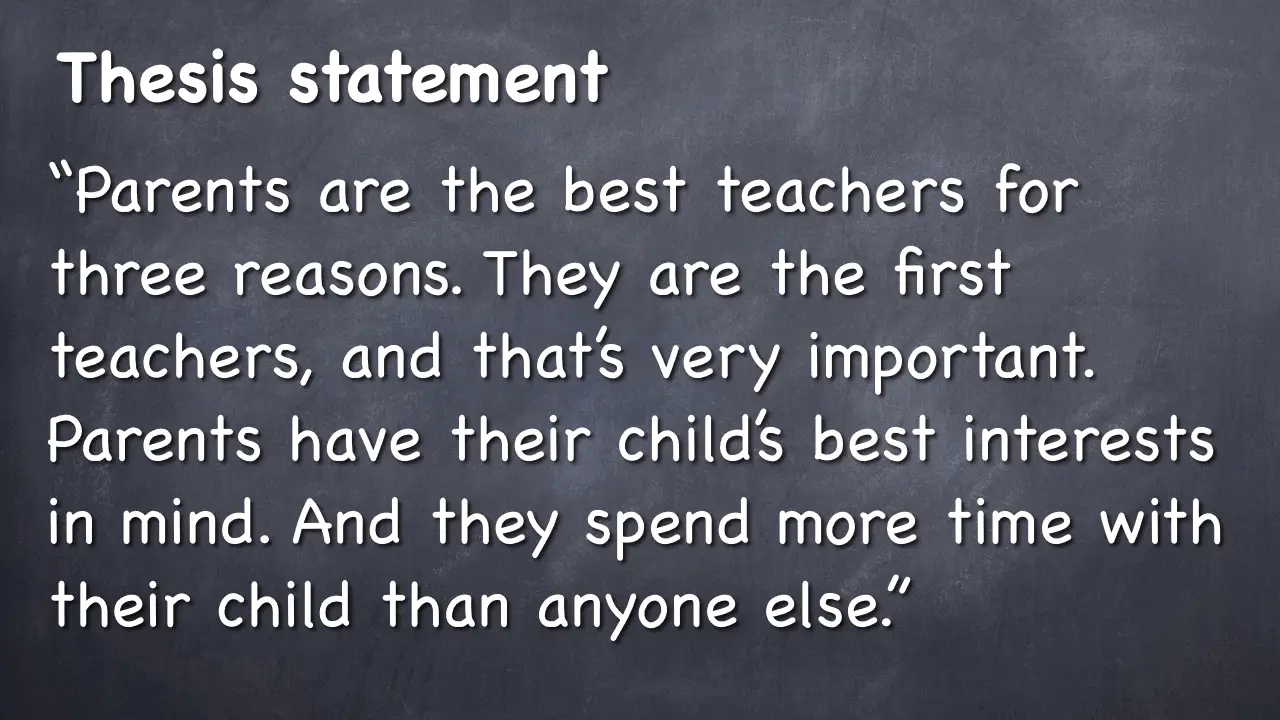
In this paragraph, we go straight to the point, and there’s nothing wrong with that.
However, as we know, most instructors will expect some kind of an introduction. So, we’ll add one sentence before we get to the main point.
This sentence must be more general. We are zooming out a little. Let’s do it:
And let’s take a look at the full paragraph together with the introduction:
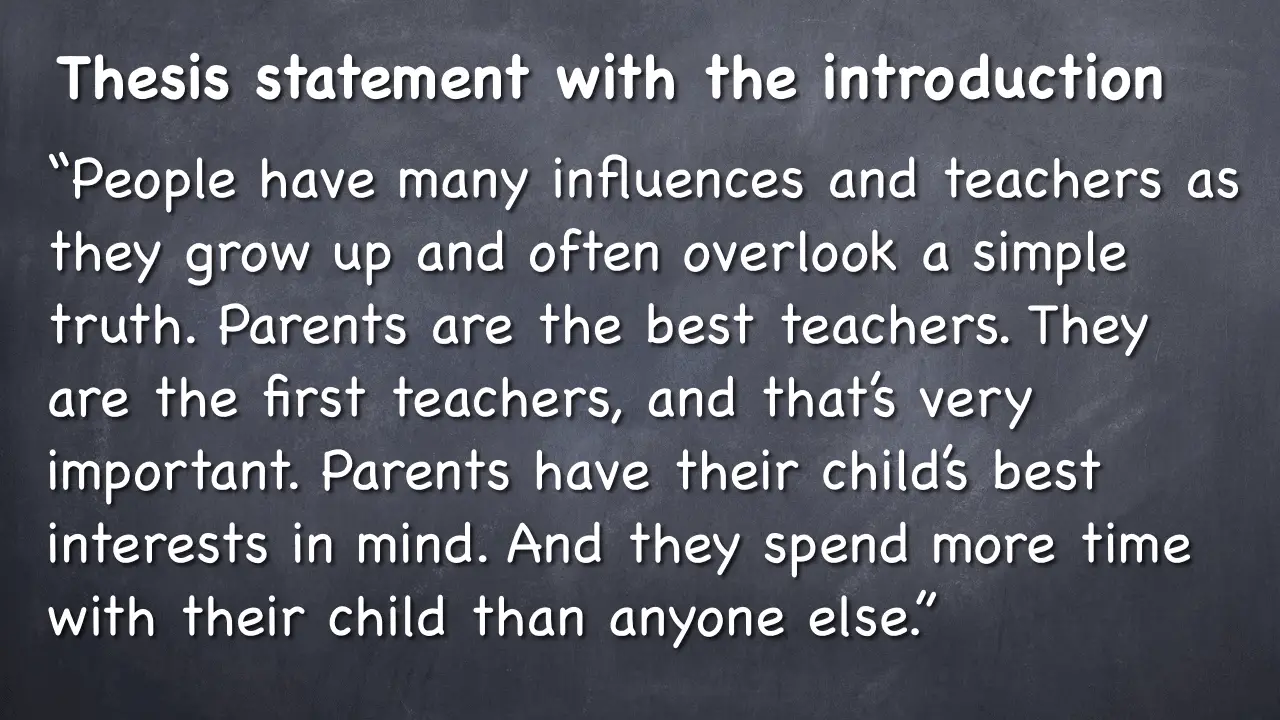
Note that I took out the phrase “for three reasons.” It is unnecessary because it is clear that you are providing three supporting points. And the whole paragraph sounds better this way.
To write the conclusion, we’ll simply reword the thesis statement. We only need to make sure that we don’t sound like we’re just repeating things.
That was not too hard, was it?
It’s time for the final step.
In this step, we just need to go over our essay, making final edits and corrections. And that’s all.
I hope this tutorial really helps you in your essay writing.
Stay tuned and we’ll talk soon!
How to Write a 300 Word Essay – Simple Tutorial
How to expand an essay – 4 tips to increase the word count, 10 solid essay writing tips to help you improve quickly, 6 simple ways to improve sentence structure in your essays.
Tutor Phil is an e-learning professional who helps adult learners finish their degrees by teaching them academic writing skills.
You Might Also Like...
How to Paraphrase in an Essay - Tutorial with Examples
https://youtu.be/1cCD66urqwo Paraphrasing is expressing the contents of a passage in different words. It allows the student to use other people’s content without copying or...
How to Expand an Essay - 4 Tips to Increase the Word Count
Do you feel that you’ve written all you could in this essay, but it’s still short of the word count requirement? Maybe you need to add a few hundred or even a thousand words. If so, you’ve...

- Online Course
How To Start An Essay (With 20 Great Examples)
Starting your essay is probably the most difficult thing to do in the whole writing process.
Facing a blank page and unsure how to start your essay? Crafting a compelling essay isn’t innate for everyone. While it’s about presenting clear ideas, even top students can struggle. For many, meeting deadlines or ensuring quality becomes daunting, leading them to consult professionals like do my essay cheap . These experts whip up top-tier essays swiftly. A standout essay can elevate your academic status, with the introduction being the pivotal hook. Many opt to hire essay writers for that impeccable start. But crafting an engaging intro is doable. Want to captivate your readers immediately? Or impress academic panels? If the task still feels daunting, there’s always the option to buy assignments online for guaranteed quality. But let’s explore ways to start an essay on your own.
How to start your essay? – The most straightforward advice
In his famous book “On Writing: A Memoir of the Craft” , Stephen King said: “The scariest moment is always just before you start.” So the best thing to do is to start writing as soon as you can. It doesn’t have to be perfect. Just sit down and write anything, because the Muse comes to those who are brave enough to start. Maybe you’ll throw half of it away, but at least you’ll have something to hang on to.
How to begin your essay? – The lengthier and more appropriate advice
The aim of an academic essay is usually to persuade readers to change their minds about something. It can also be a descriptive, expository, argumentative, or narrative essay .
But regardless of the format of the essay , the introduction should still have these basic ingredients:
- Introduce the topic – let the reader know what is it about straight away.
- Put the topic in an appropriate context. Frame it, and provide some background information.
- Narrow down the focus. If your essay is too broad, you’ll lose the interest of the reader and fail to address the important issue.
- Answer an important question or make a strong statement which you’ll defend throughout the essay.
- Orientate the reader. In the beginning, you need to answer questions like who, what, when, and how. Remember that the reader probably doesn’t know all the facts that you do.
- Briefly mention the main ideas you are going to discuss in the essay.
How long should an essay introduction be?
It all depends on the overall length of your essay. If it’s a standard, five-paragraph college essay , the introduction should only take one paragraph or 60-80 words. But if you’re writing something longer, for example, a five-page interpretation of a literary work, the introduction could take two to three paragraphs or 120-150 words. You can measure the length using a simple word counter but don’t obsess too much about the number. The crucial thing is to say what you need to say and impact the reader.
The aim of the introductory paragraph
The first paragraph is always tricky because it serves a double purpose. It has to state what the essay will be about, but it needs to hook the readers and motivate them to read on. That’s why you need a perfect balance between clinical precision and artistic flair.
If you truly want to learn how to begin an essay, there are three best ways to do it:
- Read as many great essays as possible
- Write as many great essays as possible
- Check examples of great essay introductory paragraphs (that’s what you can see below)
20 Great examples and tips on how to start an essay:
1. describe a setting and start with an emotional punch.
“I’ve been to Australia twice so far, but according to my father, I’ve never actually seen it. He made this observation at the home of my cousin Joan, whom he and I visited just before Christmas last year, and it came on the heels of an equally aggressive comment.” – David Sedaris, Laugh, Kookaburra
2. Start with a deeply personal story from your childhood
“One Sunday morning when I was a boy, my father came out of his office and handed me a poem. It was about a honeybee counseling a flea to flee a doggy and see the sea. The barbiturates my father took to regulate his emotions made him insomniac, and I understood that he’d been awake most of the night, laboring over these lines, listing all the words he could think of ending in a long “e.” – Charles D’Ambrosio – Documents
3. Create a mysterious atmosphere
“Moths that fly by day are not properly to be called moths; they do not excite that pleasant sense of dark autumn nights and ivy-blossom which the commonest yellow-underwing asleep in the shadow of the curtain never fails to rouse in us.” – Virginia Woolf – Death of the Moth
4. Throw the reader straight into the middle of the events
“Earlier this summer I was walking down West End Avenue in Manhattan and remembered, with a sadness that nearly knocked me off my feet, just why I came to New York seven years ago and just why I am now about to leave.” – Meghan Daum – My Misspent Youth
5. Start with universal questions of life and death
“I know it is coming, and I do not fear it, because I believe there is nothing on the other side of death to fear. I hope to be spared as much pain as possible on the approach path. I was perfectly content before I was born, and I think of death as the same state.” – Roger Ebert – Go Gentle Into That Good Night
6. Start with a question and then answer it
“What is the charm of necklaces? Why would anyone put something extra around their neck and then invest it with special significance? A necklace doesn’t afford warmth in cold weather, like a scarf, or protection in combat, like chain mail; it only decorates. We might say, it borrows meaning from what it surrounds and sets off, the head with its supremely important material contents, and the face, that register of the soul.” – Emily R. Grosholz – On Necklaces
7. Start with irony
“In Moulmein, in Lower Burma, I was hated by large numbers of people – the only time in my life that I have been important enough for this to happen to me.” – George Orwell – Shooting an Elephant
8. Begin by creating great expectations of what’s to come (use the introduction as bait)
“At a dinner party that will forever be green in the memory of those who attended it, somebody was complaining not just about the epic badness of the novels of Robert Ludlum but also about the badness of their titles. (You know the sort of pretentiousness: The Bourne Supremacy, The Aquitaine Progression, The Ludlum Impersonation, and so forth.) Then it happily occurred to another guest to wonder aloud what a Shakespeare play might be called if named in the Ludlum manner.” – Christopher Hitchens – Assassins of The Mind
9. Start with a puzzle (notice how you start to wonder who is she talking about in this introduction)
“The first time I heard her I didn’t hear her at all. My parents did not prepare me. (The natural thing in these situations is to blame the parents.) She was nowhere to be found on their four-foot-tall wood veneer hi-fi. Given the variety of voices you got to hear on that contraption, her absence was a little strange.” – Zadie Smith – Some Notes on Attunement
10. Start with dark humor
“When I was young, I thought Life: A User’s Manual would teach me how to live and Suicide: A User’s Manual how to die.” – Édouard Levé – When I Look at a Strawberry, I Think of a Tongue
11. Start with an unusual question that will pull the readers in
“Do you know what a twerp is? When I was in Shortridge High School in Indianapolis 65 years ago, a twerp was a guy who stuck a set of false teeth up his butt and bit the buttons off the back seats of taxicabs. (And a snarf was a guy who sniffed the seats of girls’ bicycles.)” – Kurt Vonnegut – Dispatch From A Man Without a Country
12. Commence by taking the reader into the world of mystery and awe
“The earliest experience of art must have been that it was incantatory, magical; art was an instrument of ritual. (Cf. the paintings in the caves at Lascaux, Altamira, Niaux, La Pasiega, etc.) The earliest theory of art, that of the Greek philosophers, proposed that art was mimesis, imitation of reality.” – Susan Sontag – Against Interpretation
13. State your thesis at the very beginning – be clear about it
“Science has beauty, power, and majesty that can provide spiritual as well as practical fulfillment. But superstition and pseudoscience keep getting in the way providing easy answers, casually pressing our awe buttons, and cheapening the experience.” – Carl Sagan – Does Truth Matter – Science, Pseudoscience, and Civilization
14. Start with the obvious that’s not so obvious after all
“To do something well you have to like it. That idea is not exactly novel. We’ve got it down to four words: “Do what you love.” But it’s not enough just to tell people that. Doing what you love is complicated.” – Paul Graham – How To Do What You Love
15. Be unpredictable and highly intellectual
“Once, in a dry season, I wrote in large letters across two pages of a notebook that innocence ends when one is stripped of the delusion that one likes oneself. Although now, some years later, I marvel that a mind on the outs with itself should have nonetheless made painstaking record of its every tremor, I recall with embarrassing clarity the flavor of those particular ashes. It was a matter of misplaced self-respect.” – Joan Didion – On Self Respect
16. Get straight to the point
“The enormous, pungent, and extremely well marketed Maine Lobster Festival is held every late July in the state’s mid-coast region, meaning the western side of Penobscot Bay, the nerve stem of Maine’s lobster industry.” – David Foster Wallace – Consider The Lobster
17. Start in a deeply emotional, poetic manner
“The collie wakes me up about three times a night, summoning me from a great distance as I row my boat through a dim, complicated dream. She’s on the shoreline, barking. Wake up. She’s staring at me with her head slightly tipped to the side, long nose, gazing eyes, toenails clenched to get a purchase on the wood floor. We used to call her the face of love.” – Jo Ann Beard – The Fourth State of Matter
18. Begin by describing the place and circumstances in great detail
“Two blocks away from the Mississippi State Capitol, and on the same street with it, where our house was when I was a child growing up in Jackson, it was possible to have a little pasture behind your backyard where you could keep a Jersey cow, which we did. My mother herself milked her. A thrifty homemaker, wife, and mother of three, she also did all her cooking. And as far as I can recall, she never set foot inside a grocery store. It wasn’t necessary.” – Eudora Welty – The Little Store
19. Start by presenting an original idea (frame it in a way that the reader never considered before)
“Saints should always be judged guilty until they are proved innocent, but the tests that have to be applied to them are not, of course, the same in all cases. In Gandhi’s case the questions one feels inclined to ask are: to what extent was Gandhi moved by vanity — by the consciousness of himself as a humble, naked old man, sitting on a praying mat and shaking empires by sheer spiritual power — and to what extent did he compromise his principles by entering politics, which of their nature are inseparable from coercion and fraud?” – George Orwell – Reflections on Gandhi
20. Be clear-headed and approach the subject as objectively as possible
“Fantasists and zealots can be found on both sides of the debate over guns in America. On the one hand, many gun rights advocates reject even the most sensible restrictions on the sale of weapons to the public. On the other, proponents of stricter gun laws often seem unable to understand why a good person would ever want ready access to a loaded firearm. Between these two extremes, we must find grounds for a rational discussion about the problem of gun violence.” – Sam Harris – The Riddle of The Gun
Looking for an answer on how to start an essay is always tricky. You can get inspiration from many sources, but if you want to create an essay that packs a powerful punch from the very beginning, look inside yourself and come up with at least a few openings. Then, do your best to revise the opening paragraphs a couple of times so you end up with something truly impactful and attention-grabbing. Good luck! Next up, you may want to explore a guide on how to write a great 500-word essay .

Digital marketing course: Join my full AI Marketing course, with over 6h and 30 minutes of video lessons and 5 bonuses and learn the skills necessary to thrive as a marketer in the digital era.

Rafal Reyzer
Hey there, welcome to my blog! I'm a full-time entrepreneur building two companies, a digital marketer, and a content creator with 10+ years of experience. I started RafalReyzer.com to provide you with great tools and strategies you can use to become a proficient digital marketer and achieve freedom through online creativity. My site is a one-stop shop for digital marketers, and content enthusiasts who want to be independent, earn more money, and create beautiful things. Explore my journey here , and don't miss out on my AI Marketing Mastery online course.

Sample Essays
The breadth of Georgetown’s core curriculum means that students are required to write for a wide variety of academic disciplines. Below, we provide some student samples that exhibit the key features the most popular genres. When reading through these essays, we recommend paying attention to their
1. Structure (How many paragraphs are there? Does the author use headers?)
2. Argument (Is the author pointing out a problem, and/or proposing a solution?)
3. Content (Does the argument principally rely on facts, theory, or logic?) and
4. Style (Does the writer use first person? What is the relationship with the audience?)
Philosophy Paper
- Singer on the Moral Status of Animals
Theology Paper
- Problem of God
- Jewish Civilization
- Sacred Space and Time
- Phenolphthalein in Alkaline Solution
History Paper
- World History
Literature Review
Comparative Analysis
Policy Brief
- Vaccine Manufacturing
White Paper
Critical Analysis
- Ignatius Seminar

Tips for Online Students , Tips for Students
How To Write An Essay: Beginner Tips And Tricks
Updated: July 11, 2022
Published: June 22, 2021

Many students dread writing essays, but essay writing is an important skill to develop in high school, university, and even into your future career. By learning how to write an essay properly, the process can become more enjoyable and you’ll find you’re better able to organize and articulate your thoughts.
When writing an essay, it’s common to follow a specific pattern, no matter what the topic is. Once you’ve used the pattern a few times and you know how to structure an essay, it will become a lot more simple to apply your knowledge to every essay.
No matter which major you choose, you should know how to craft a good essay. Here, we’ll cover the basics of essay writing, along with some helpful tips to make the writing process go smoothly.

Photo by Laura Chouette on Unsplash
Types of Essays
Think of an essay as a discussion. There are many types of discussions you can have with someone else. You can be describing a story that happened to you, you might explain to them how to do something, or you might even argue about a certain topic.
When it comes to different types of essays, it follows a similar pattern. Like a friendly discussion, each type of essay will come with its own set of expectations or goals.
For example, when arguing with a friend, your goal is to convince them that you’re right. The same goes for an argumentative essay.
Here are a few of the main essay types you can expect to come across during your time in school:
Narrative Essay
This type of essay is almost like telling a story, not in the traditional sense with dialogue and characters, but as if you’re writing out an event or series of events to relay information to the reader.
Persuasive Essay
Here, your goal is to persuade the reader about your views on a specific topic.
Descriptive Essay
This is the kind of essay where you go into a lot more specific details describing a topic such as a place or an event.
Argumentative Essay
In this essay, you’re choosing a stance on a topic, usually controversial, and your goal is to present evidence that proves your point is correct.
Expository Essay
Your purpose with this type of essay is to tell the reader how to complete a specific process, often including a step-by-step guide or something similar.
Compare and Contrast Essay
You might have done this in school with two different books or characters, but the ultimate goal is to draw similarities and differences between any two given subjects.
The Main Stages of Essay Writing
When it comes to writing an essay, many students think the only stage is getting all your ideas down on paper and submitting your work. However, that’s not quite the case.
There are three main stages of writing an essay, each one with its own purpose. Of course, writing the essay itself is the most substantial part, but the other two stages are equally as important.
So, what are these three stages of essay writing? They are:
Preparation
Before you even write one word, it’s important to prepare the content and structure of your essay. If a topic wasn’t assigned to you, then the first thing you should do is settle on a topic. Next, you want to conduct your research on that topic and create a detailed outline based on your research. The preparation stage will make writing your essay that much easier since, with your outline and research, you should already have the skeleton of your essay.
Writing is the most time-consuming stage. In this stage, you will write out all your thoughts and ideas and craft your essay based on your outline. You’ll work on developing your ideas and fleshing them out throughout the introduction, body, and conclusion (more on these soon).
In the final stage, you’ll go over your essay and check for a few things. First, you’ll check if your essay is cohesive, if all the points make sense and are related to your topic, and that your facts are cited and backed up. You can also check for typos, grammar and punctuation mistakes, and formatting errors.
The Five-Paragraph Essay
We mentioned earlier that essay writing follows a specific structure, and for the most part in academic or college essays , the five-paragraph essay is the generally accepted structure you’ll be expected to use.
The five-paragraph essay is broken down into one introduction paragraph, three body paragraphs, and a closing paragraph. However, that doesn’t always mean that an essay is written strictly in five paragraphs, but rather that this structure can be used loosely and the three body paragraphs might become three sections instead.
Let’s take a closer look at each section and what it entails.
Introduction
As the name implies, the purpose of your introduction paragraph is to introduce your idea. A good introduction begins with a “hook,” something that grabs your reader’s attention and makes them excited to read more.
Another key tenant of an introduction is a thesis statement, which usually comes towards the end of the introduction itself. Your thesis statement should be a phrase that explains your argument, position, or central idea that you plan on developing throughout the essay.
You can also include a short outline of what to expect in your introduction, including bringing up brief points that you plan on explaining more later on in the body paragraphs.
Here is where most of your essay happens. The body paragraphs are where you develop your ideas and bring up all the points related to your main topic.
In general, you’re meant to have three body paragraphs, or sections, and each one should bring up a different point. Think of it as bringing up evidence. Each paragraph is a different piece of evidence, and when the three pieces are taken together, it backs up your main point — your thesis statement — really well.
That being said, you still want each body paragraph to be tied together in some way so that the essay flows. The points should be distinct enough, but they should relate to each other, and definitely to your thesis statement. Each body paragraph works to advance your point, so when crafting your essay, it’s important to keep this in mind so that you avoid going off-track or writing things that are off-topic.
Many students aren’t sure how to write a conclusion for an essay and tend to see their conclusion as an afterthought, but this section is just as important as the rest of your work.
You shouldn’t be presenting any new ideas in your conclusion, but you should summarize your main points and show how they back up your thesis statement.
Essentially, the conclusion is similar in structure and content to the introduction, but instead of introducing your essay, it should be wrapping up the main thoughts and presenting them to the reader as a singular closed argument.

Photo by AMIT RANJAN on Unsplash
Steps to Writing an Essay
Now that you have a better idea of an essay’s structure and all the elements that go into it, you might be wondering what the different steps are to actually write your essay.
Don’t worry, we’ve got you covered. Instead of going in blind, follow these steps on how to write your essay from start to finish.
Understand Your Assignment
When writing an essay for an assignment, the first critical step is to make sure you’ve read through your assignment carefully and understand it thoroughly. You want to check what type of essay is required, that you understand the topic, and that you pay attention to any formatting or structural requirements. You don’t want to lose marks just because you didn’t read the assignment carefully.
Research Your Topic
Once you understand your assignment, it’s time to do some research. In this step, you should start looking at different sources to get ideas for what points you want to bring up throughout your essay.
Search online or head to the library and get as many resources as possible. You don’t need to use them all, but it’s good to start with a lot and then narrow down your sources as you become more certain of your essay’s direction.
Start Brainstorming
After research comes the brainstorming. There are a lot of different ways to start the brainstorming process . Here are a few you might find helpful:
- Think about what you found during your research that interested you the most
- Jot down all your ideas, even if they’re not yet fully formed
- Create word clouds or maps for similar terms or ideas that come up so you can group them together based on their similarities
- Try freewriting to get all your ideas out before arranging them
Create a Thesis
This is often the most tricky part of the whole process since you want to create a thesis that’s strong and that you’re about to develop throughout the entire essay. Therefore, you want to choose a thesis statement that’s broad enough that you’ll have enough to say about it, but not so broad that you can’t be precise.
Write Your Outline
Armed with your research, brainstorming sessions, and your thesis statement, the next step is to write an outline.
In the outline, you’ll want to put your thesis statement at the beginning and start creating the basic skeleton of how you want your essay to look.
A good way to tackle an essay is to use topic sentences . A topic sentence is like a mini-thesis statement that is usually the first sentence of a new paragraph. This sentence introduces the main idea that will be detailed throughout the paragraph.
If you create an outline with the topic sentences for your body paragraphs and then a few points of what you want to discuss, you’ll already have a strong starting point when it comes time to sit down and write. This brings us to our next step…
Write a First Draft
The first time you write your entire essay doesn’t need to be perfect, but you do need to get everything on the page so that you’re able to then write a second draft or review it afterward.
Everyone’s writing process is different. Some students like to write their essay in the standard order of intro, body, and conclusion, while others prefer to start with the “meat” of the essay and tackle the body, and then fill in the other sections afterward.
Make sure your essay follows your outline and that everything relates to your thesis statement and your points are backed up by the research you did.
Revise, Edit, and Proofread
The revision process is one of the three main stages of writing an essay, yet many people skip this step thinking their work is done after the first draft is complete.
However, proofreading, reviewing, and making edits on your essay can spell the difference between a B paper and an A.
After writing the first draft, try and set your essay aside for a few hours or even a day or two, and then come back to it with fresh eyes to review it. You might find mistakes or inconsistencies you missed or better ways to formulate your arguments.
Add the Finishing Touches
Finally, you’ll want to make sure everything that’s required is in your essay. Review your assignment again and see if all the requirements are there, such as formatting rules, citations, quotes, etc.
Go over the order of your paragraphs and make sure everything makes sense, flows well, and uses the same writing style .
Once everything is checked and all the last touches are added, give your essay a final read through just to ensure it’s as you want it before handing it in.
A good way to do this is to read your essay out loud since you’ll be able to hear if there are any mistakes or inaccuracies.
Essay Writing Tips
With the steps outlined above, you should be able to craft a great essay. Still, there are some other handy tips we’d recommend just to ensure that the essay writing process goes as smoothly as possible.
- Start your essay early. This is the first tip for a reason. It’s one of the most important things you can do to write a good essay. If you start it the night before, then you won’t have enough time to research, brainstorm, and outline — and you surely won’t have enough time to review.
- Don’t try and write it in one sitting. It’s ok if you need to take breaks or write it over a few days. It’s better to write it in multiple sittings so that you have a fresh mind each time and you’re able to focus.
- Always keep the essay question in mind. If you’re given an assigned question, then you should always keep it handy when writing your essay to make sure you’re always working to answer the question.
- Use transitions between paragraphs. In order to improve the readability of your essay, try and make clear transitions between paragraphs. This means trying to relate the end of one paragraph to the beginning of the next one so the shift doesn’t seem random.
- Integrate your research thoughtfully. Add in citations or quotes from your research materials to back up your thesis and main points. This will show that you did the research and that your thesis is backed up by it.
Wrapping Up
Writing an essay doesn’t need to be daunting if you know how to approach it. Using our essay writing steps and tips, you’ll have better knowledge on how to write an essay and you’ll be able to apply it to your next assignment. Once you do this a few times, it will become more natural to you and the essay writing process will become quicker and easier.
If you still need assistance with your essay, check with a student advisor to see if they offer help with writing. At University of the People(UoPeople), we always want our students to succeed, so our student advisors are ready to help with writing skills when necessary.
Related Articles
- Clerc Center | PK-12 & Outreach
- KDES | PK-8th Grade School (D.C. Metro Area)
- MSSD | 9th-12th Grade School (Nationwide)
- Gallaudet University Regional Centers
- Parent Advocacy App
- K-12 ASL Content Standards
- National Resources
- Youth Programs
- Academic Bowl
- Battle Of The Books
- National Literary Competition
- Youth Debate Bowl
- Bison Sports Camp
- Discover College and Careers (DC²)
- Financial Wizards
- Immerse Into ASL
- Alumni Relations
- Alumni Association
- Homecoming Weekend
- Class Giving
- Get Tickets / BisonPass
- Sport Calendars
- Cross Country
- Swimming & Diving
- Track & Field
- Indoor Track & Field
- Cheerleading
- Winter Cheerleading
- Human Resources
- Plan a Visit
- Request Info

- Areas of Study
- Accessible Human-Centered Computing
- American Sign Language
- Art and Media Design
- Communication Studies
- Data Science
- Deaf Studies
- Early Intervention Studies Graduate Programs
- Educational Neuroscience
- Hearing, Speech, and Language Sciences
- Information Technology
- International Development
- Interpretation and Translation
- Linguistics
- Mathematics
- Philosophy and Religion
- Physical Education & Recreation
- Public Affairs
- Public Health
- Sexuality and Gender Studies
- Social Work
- Theatre and Dance
- World Languages and Cultures
- B.A. in American Sign Language
- B.A. in Art and Media Design
- B.A. in Biology
- B.A. in Communication Studies
- B.A. in Communication Studies for Online Degree Completion Program
- B.A. in Deaf Studies
- B.A. in Deaf Studies for Online Degree Completion Program
- B.A. in Education with a Specialization in Early Childhood Education
- B.A. in Education with a Specialization in Elementary Education
- B.A. in English
- B.A. in Government
- B.A. in Government with a Specialization in Law
- B.A. in History
- B.A. in Interdisciplinary Spanish
- B.A. in International Studies
- B.A. in Interpretation
- B.A. in Mathematics
- B.A. in Philosophy
- B.A. in Psychology
- B.A. in Psychology for Online Degree Completion Program
- B.A. in Social Work (BSW)
- B.A. in Sociology
- B.A. in Sociology with a concentration in Criminology
- B.A. in Theatre Arts: Production/Performance
- B.A. or B.S. in Education with a Specialization in Secondary Education: Science, English, Mathematics or Social Studies
- B.S in Risk Management and Insurance
- B.S. in Accounting
- B.S. in Biology
- B.S. in Business Administration
- B.S. in Information Technology
- B.S. in Mathematics
- B.S. in Physical Education and Recreation
- B.S. In Public Health
- General Education
- Honors Program
- Peace Corps Prep program
- Self-Directed Major
- M.A. in Counseling: Clinical Mental Health Counseling
- M.A. in Counseling: School Counseling
- M.A. in Deaf Education
- M.A. in Deaf Education Studies
- M.A. in Deaf Studies: Cultural Studies
- M.A. in Deaf Studies: Language and Human Rights
- M.A. in Early Childhood Education and Deaf Education
- M.A. in Early Intervention Studies
- M.A. in Elementary Education and Deaf Education
- M.A. in International Development
- M.A. in Interpretation: Combined Interpreting Practice and Research
- M.A. in Interpretation: Interpreting Research
- M.A. in Linguistics
- M.A. in Secondary Education and Deaf Education
- M.A. in Sign Language Education
- M.S. in Accessible Human-Centered Computing
- M.S. in Speech-Language Pathology
- Master of Social Work (MSW)
- Au.D. in Audiology
- Ed.D. in Transformational Leadership and Administration in Deaf Education
- Ph.D. in Clinical Psychology
- Ph.D. in Critical Studies in the Education of Deaf Learners
- Ph.D. in Hearing, Speech, and Language Sciences
- Ph.D. in Linguistics
- Ph.D. in Translation and Interpreting Studies
- Ph.D. Program in Educational Neuroscience (PEN)
- Individual Courses and Training
- Certificates
- Certificate in Sexuality and Gender Studies
- Educating Deaf Students with Disabilities (online, post-bachelor’s)
- American Sign Language and English Bilingual Early Childhood Deaf Education: Birth to 5 (online, post-bachelor’s)
- Peer Mentor Training (low-residency/hybrid, post-bachelor’s)
- Early Intervention Studies Graduate Certificate
- Online Degree Programs
- ODCP Minor in Communication Studies
- ODCP Minor in Deaf Studies
- ODCP Minor in Psychology
- ODCP Minor in Writing
- Online Degree Program General Education Curriculum
- University Capstone Honors for Online Degree Completion Program
Quick Links
- PK-12 & Outreach
- NSO Schedule

Essay Topic Suggestions to Help You Get Started
202.448-7036
10 Topic Suggestions for Descriptive Essays
10 Topic Suggestions for Narrative Essays
Return to Top
10 Topic Suggestions for Process Analysis Essays
10 Topic Suggestions for Exemplification Essays
10 Topic Suggestions for Comparison and Contrast Essays
Return to Top
10 Topic Suggestions for Analogy Essays
10 Topic Suggestions for Classification Essays
10 Topic Suggestions for Cause and Effect Essays
Return to Top ]
10 Topic Suggestions for Definition Essays
10 Topic Suggestions for Argument and Persuasion Essays
- About (2012). Retrieved April 27, 2012, from http://grammar.about.com/od/tz/g/topicterm.htm
- Free Writing (2012). Retrieved April 27, 2012, from http://www.writingvalley.com/category/essay-topics/
202-448-7036
At a Glance
- Quick Facts
- University Leadership
- History & Traditions
- Accreditation
- Consumer Information
- Our 10-Year Vision: The Gallaudet Promise
- Annual Report of Achievements (ARA)
- The Signing Ecosystem
- Not Your Average University
Our Community
- Library & Archives
- Technology Support
- Interpreting Requests
- Ombuds Support
- Health and Wellness Programs
- Profile & Web Edits
Visit Gallaudet
- Explore Our Campus
- Virtual Tour
- Maps & Directions
- Shuttle Bus Schedule
- Kellogg Conference Hotel
- Welcome Center
- National Deaf Life Museum
- Apple Guide Maps
Engage Today
- Work at Gallaudet / Clerc Center
- Social Media Channels
- University Wide Events
- Sponsorship Requests
- Data Requests
- Media Inquiries
- Gallaudet Today Magazine
- Giving at Gallaudet
- Financial Aid
- Registrar’s Office
- Residence Life & Housing
- Safety & Security
- Undergraduate Admissions
- Graduate Admissions
- University Communications
- Clerc Center

Gallaudet University, chartered in 1864, is a private university for deaf and hard of hearing students.
Copyright © 2024 Gallaudet University. All rights reserved.
- Accessibility
- Cookie Consent Notice
- Privacy Policy
- File a Report
800 Florida Avenue NE, Washington, D.C. 20002
Have a language expert improve your writing
Run a free plagiarism check in 10 minutes, generate accurate citations for free.
- Knowledge Base
- Research paper
How to Write a Research Paper | A Beginner's Guide
A research paper is a piece of academic writing that provides analysis, interpretation, and argument based on in-depth independent research.
Research papers are similar to academic essays , but they are usually longer and more detailed assignments, designed to assess not only your writing skills but also your skills in scholarly research. Writing a research paper requires you to demonstrate a strong knowledge of your topic, engage with a variety of sources, and make an original contribution to the debate.
This step-by-step guide takes you through the entire writing process, from understanding your assignment to proofreading your final draft.
Instantly correct all language mistakes in your text
Upload your document to correct all your mistakes in minutes

Table of contents
Understand the assignment, choose a research paper topic, conduct preliminary research, develop a thesis statement, create a research paper outline, write a first draft of the research paper, write the introduction, write a compelling body of text, write the conclusion, the second draft, the revision process, research paper checklist, free lecture slides.
Completing a research paper successfully means accomplishing the specific tasks set out for you. Before you start, make sure you thoroughly understanding the assignment task sheet:
- Read it carefully, looking for anything confusing you might need to clarify with your professor.
- Identify the assignment goal, deadline, length specifications, formatting, and submission method.
- Make a bulleted list of the key points, then go back and cross completed items off as you’re writing.
Carefully consider your timeframe and word limit: be realistic, and plan enough time to research, write, and edit.
Here's why students love Scribbr's proofreading services
Discover proofreading & editing
There are many ways to generate an idea for a research paper, from brainstorming with pen and paper to talking it through with a fellow student or professor.
You can try free writing, which involves taking a broad topic and writing continuously for two or three minutes to identify absolutely anything relevant that could be interesting.
You can also gain inspiration from other research. The discussion or recommendations sections of research papers often include ideas for other specific topics that require further examination.
Once you have a broad subject area, narrow it down to choose a topic that interests you, m eets the criteria of your assignment, and i s possible to research. Aim for ideas that are both original and specific:
- A paper following the chronology of World War II would not be original or specific enough.
- A paper on the experience of Danish citizens living close to the German border during World War II would be specific and could be original enough.
Note any discussions that seem important to the topic, and try to find an issue that you can focus your paper around. Use a variety of sources , including journals, books, and reliable websites, to ensure you do not miss anything glaring.
Do not only verify the ideas you have in mind, but look for sources that contradict your point of view.
- Is there anything people seem to overlook in the sources you research?
- Are there any heated debates you can address?
- Do you have a unique take on your topic?
- Have there been some recent developments that build on the extant research?
In this stage, you might find it helpful to formulate some research questions to help guide you. To write research questions, try to finish the following sentence: “I want to know how/what/why…”
A thesis statement is a statement of your central argument — it establishes the purpose and position of your paper. If you started with a research question, the thesis statement should answer it. It should also show what evidence and reasoning you’ll use to support that answer.
The thesis statement should be concise, contentious, and coherent. That means it should briefly summarize your argument in a sentence or two, make a claim that requires further evidence or analysis, and make a coherent point that relates to every part of the paper.
You will probably revise and refine the thesis statement as you do more research, but it can serve as a guide throughout the writing process. Every paragraph should aim to support and develop this central claim.
Prevent plagiarism. Run a free check.
A research paper outline is essentially a list of the key topics, arguments, and evidence you want to include, divided into sections with headings so that you know roughly what the paper will look like before you start writing.
A structure outline can help make the writing process much more efficient, so it’s worth dedicating some time to create one.
Your first draft won’t be perfect — you can polish later on. Your priorities at this stage are as follows:
- Maintaining forward momentum — write now, perfect later.
- Paying attention to clear organization and logical ordering of paragraphs and sentences, which will help when you come to the second draft.
- Expressing your ideas as clearly as possible, so you know what you were trying to say when you come back to the text.
You do not need to start by writing the introduction. Begin where it feels most natural for you — some prefer to finish the most difficult sections first, while others choose to start with the easiest part. If you created an outline, use it as a map while you work.
Do not delete large sections of text. If you begin to dislike something you have written or find it doesn’t quite fit, move it to a different document, but don’t lose it completely — you never know if it might come in useful later.
Paragraph structure
Paragraphs are the basic building blocks of research papers. Each one should focus on a single claim or idea that helps to establish the overall argument or purpose of the paper.
Example paragraph
George Orwell’s 1946 essay “Politics and the English Language” has had an enduring impact on thought about the relationship between politics and language. This impact is particularly obvious in light of the various critical review articles that have recently referenced the essay. For example, consider Mark Falcoff’s 2009 article in The National Review Online, “The Perversion of Language; or, Orwell Revisited,” in which he analyzes several common words (“activist,” “civil-rights leader,” “diversity,” and more). Falcoff’s close analysis of the ambiguity built into political language intentionally mirrors Orwell’s own point-by-point analysis of the political language of his day. Even 63 years after its publication, Orwell’s essay is emulated by contemporary thinkers.
Citing sources
It’s also important to keep track of citations at this stage to avoid accidental plagiarism . Each time you use a source, make sure to take note of where the information came from.
You can use our free citation generators to automatically create citations and save your reference list as you go.
APA Citation Generator MLA Citation Generator
The research paper introduction should address three questions: What, why, and how? After finishing the introduction, the reader should know what the paper is about, why it is worth reading, and how you’ll build your arguments.
What? Be specific about the topic of the paper, introduce the background, and define key terms or concepts.
Why? This is the most important, but also the most difficult, part of the introduction. Try to provide brief answers to the following questions: What new material or insight are you offering? What important issues does your essay help define or answer?
How? To let the reader know what to expect from the rest of the paper, the introduction should include a “map” of what will be discussed, briefly presenting the key elements of the paper in chronological order.
The major struggle faced by most writers is how to organize the information presented in the paper, which is one reason an outline is so useful. However, remember that the outline is only a guide and, when writing, you can be flexible with the order in which the information and arguments are presented.
One way to stay on track is to use your thesis statement and topic sentences . Check:
- topic sentences against the thesis statement;
- topic sentences against each other, for similarities and logical ordering;
- and each sentence against the topic sentence of that paragraph.
Be aware of paragraphs that seem to cover the same things. If two paragraphs discuss something similar, they must approach that topic in different ways. Aim to create smooth transitions between sentences, paragraphs, and sections.
The research paper conclusion is designed to help your reader out of the paper’s argument, giving them a sense of finality.
Trace the course of the paper, emphasizing how it all comes together to prove your thesis statement. Give the paper a sense of finality by making sure the reader understands how you’ve settled the issues raised in the introduction.
You might also discuss the more general consequences of the argument, outline what the paper offers to future students of the topic, and suggest any questions the paper’s argument raises but cannot or does not try to answer.
You should not :
- Offer new arguments or essential information
- Take up any more space than necessary
- Begin with stock phrases that signal you are ending the paper (e.g. “In conclusion”)
There are four main considerations when it comes to the second draft.
- Check how your vision of the paper lines up with the first draft and, more importantly, that your paper still answers the assignment.
- Identify any assumptions that might require (more substantial) justification, keeping your reader’s perspective foremost in mind. Remove these points if you cannot substantiate them further.
- Be open to rearranging your ideas. Check whether any sections feel out of place and whether your ideas could be better organized.
- If you find that old ideas do not fit as well as you anticipated, you should cut them out or condense them. You might also find that new and well-suited ideas occurred to you during the writing of the first draft — now is the time to make them part of the paper.
The goal during the revision and proofreading process is to ensure you have completed all the necessary tasks and that the paper is as well-articulated as possible. You can speed up the proofreading process by using the AI proofreader .
Global concerns
- Confirm that your paper completes every task specified in your assignment sheet.
- Check for logical organization and flow of paragraphs.
- Check paragraphs against the introduction and thesis statement.
Fine-grained details
Check the content of each paragraph, making sure that:
- each sentence helps support the topic sentence.
- no unnecessary or irrelevant information is present.
- all technical terms your audience might not know are identified.
Next, think about sentence structure , grammatical errors, and formatting . Check that you have correctly used transition words and phrases to show the connections between your ideas. Look for typos, cut unnecessary words, and check for consistency in aspects such as heading formatting and spellings .
Finally, you need to make sure your paper is correctly formatted according to the rules of the citation style you are using. For example, you might need to include an MLA heading or create an APA title page .
Scribbr’s professional editors can help with the revision process with our award-winning proofreading services.
Discover our paper editing service
Checklist: Research paper
I have followed all instructions in the assignment sheet.
My introduction presents my topic in an engaging way and provides necessary background information.
My introduction presents a clear, focused research problem and/or thesis statement .
My paper is logically organized using paragraphs and (if relevant) section headings .
Each paragraph is clearly focused on one central idea, expressed in a clear topic sentence .
Each paragraph is relevant to my research problem or thesis statement.
I have used appropriate transitions to clarify the connections between sections, paragraphs, and sentences.
My conclusion provides a concise answer to the research question or emphasizes how the thesis has been supported.
My conclusion shows how my research has contributed to knowledge or understanding of my topic.
My conclusion does not present any new points or information essential to my argument.
I have provided an in-text citation every time I refer to ideas or information from a source.
I have included a reference list at the end of my paper, consistently formatted according to a specific citation style .
I have thoroughly revised my paper and addressed any feedback from my professor or supervisor.
I have followed all formatting guidelines (page numbers, headers, spacing, etc.).
You've written a great paper. Make sure it's perfect with the help of a Scribbr editor!
Open Google Slides Download PowerPoint
Is this article helpful?
Other students also liked.
- Writing a Research Paper Introduction | Step-by-Step Guide
- Writing a Research Paper Conclusion | Step-by-Step Guide
- Research Paper Format | APA, MLA, & Chicago Templates
More interesting articles
- Academic Paragraph Structure | Step-by-Step Guide & Examples
- Checklist: Writing a Great Research Paper
- How to Create a Structured Research Paper Outline | Example
- How to Write a Discussion Section | Tips & Examples
- How to Write Recommendations in Research | Examples & Tips
- How to Write Topic Sentences | 4 Steps, Examples & Purpose
- Research Paper Appendix | Example & Templates
- Research Paper Damage Control | Managing a Broken Argument
- What Is a Theoretical Framework? | Guide to Organizing
"I thought AI Proofreading was useless but.."
I've been using Scribbr for years now and I know it's a service that won't disappoint. It does a good job spotting mistakes”
Essay Writing Guide
Essay Writing
Last updated on: Jun 8, 2023
How to Write an Essay - A Complete Guide with Examples
By: Nova A.
13 min read
Reviewed By: Rylee W.
Published on: Jan 1, 2019

Are you finding yourself staring at a blank page, unsure of where to begin when it comes to writing an essay?
Do you struggle with organizing your thoughts and expressing your ideas effectively?
You're not alone!
Many students face challenges when it comes to essay writing, but fear not!
In this comprehensive guide, we will help you in writing impactful essays with confidence. From choosing a compelling topic to crafting a well-structured argument, we'll take you step-by-step through the essay writing process.
So, get ready to become a skilled essay writer in no time!

On this Page
Pre-Writing Process: Preparation and Planning
Building a strong foundation is key to crafting a stellar essay. The pre-writing process sets the stage for your essay by focusing on preparation and planning.
Understand the Essay Prompt or Topic
Before diving into the writing process, it is crucial to choose and thoroughly understand the essay topic .
Carefully read and analyze the requirements, instructions, and any specific guidelines provided.
Identify the key components of the prompt, such as:
- The main question or issue to be addressed
- The scope of the topic
- Any specific requirements for the essay
Choose the Type of Essay
The next step is to decide which type of essay you need to write. Choosing the correct type of essay is an important step toward your successful essay.
Here are the main types of essays in which every academic essay can be categorized.
- Descriptive Essay - A descriptive essay discusses the topic in detail so that it becomes easy to understand for the reader.
- Narrative Essay - A narrative essay is a narration of a story in the form of an essay.
- Persuasive Essay - A persuasive essay convinces the reader to accept your perspective about the essay topic.
- Expository Essay - An expository essay explains and clarifies the topic with great details and examples.
Knowing what type of essay you are required to write can help you choose the topic and draft the essay. Here are the other types of essays that you should also be familiar with.
- Argumentative essay
- Analytical essay
- Cause and effect essay
- Classification essay
- Synthesis essay
- Compare and Contrast Essay
Conduct Thorough Research
Once you have a clear understanding of the essay prompt, it's time to gather relevant information through research.
Utilize various sources such as scholarly articles and academic databases to gather information that will support your arguments.
Also decide what type of formatting and citation styles you need for your essay. Generally, the following are some common college essay writing styles for students:
- APA (American Psychological Association) - An Author-Date citation style designed for psychology and social science discipline.
- MLA (Modern Language Association) - An Author-Page number citation style designed for language and humanities disciplines.
- CMS (Chicago Manual of Style) - A Notes-bibliography or Author-Date citation style, also known as Turabian Style. It is applicable to both scientific and non-scientific disciplines.
Create an Outline to Structure Your Essay
An outline acts as a skeleton for your essay, providing a structured framework to guide your writing. It helps you with how to write essay format questions and ensure that your essay flows logically and coherently.
Start by organizing your main ideas or subtopics into sections or paragraphs. Then, under each main idea, list the supporting points, evidence, or examples you will include.
Wondering how to write an outline for an essay ? Here is a 5 paragraph essay outline structure.
Writing Process: Crafting Your Essay
The writing process includes engaging introduction, body and conclusion. Let’s get through the step by step for crafting each section.
Write the Introduction
An introduction paragraph is the first paragraph of your essay. The purpose of the introduction is to inform your reader about the topic that you will discuss in the essay.
If you are thinking how to write an essay introduction, here is what an engaging introduction includes:
Engaging Hook
To capture the reader's attention from the start, consider using a compelling hook .
This can be a thought-provoking question, a surprising fact, a relevant quote, or an intriguing anecdote.
The goal is to create curiosity and make the reader eager to continue reading.
Background Information
After grabbing the reader's attention, provide some context or background information related to your essay topic.
This will help the reader understand the significance and relevance of the subject matter.
It can include historical context, relevant statistics, or an overview of the current state of affairs.
Thesis Statement
Conclude the introduction with a clear and concise thesis statement that encapsulates the main argument or purpose of your essay.
The thesis statement should reflect the stance you will be taking and provide a roadmap for the subsequent body paragraphs.
Body Paragraphs
Body paragraphs are the linking paragraphs between the conclusion and introduction.
All the information, examples, facts, and details about the topic in this section ultimately support your thesis statement.
Topic Sentences and Supporting Arguments
In each body paragraph, start with a topic sentence that introduces the main point or argument.
Each topic sentence should be clear and specific, guiding the reader on what to expect in the paragraph.
Follow up with supporting arguments or ideas that expand on the topic sentence and provide evidence or examples to support your claims.
Using Evidence and Examples
To strengthen your arguments, include relevant evidence, examples, or data. This could be in the form of research findings, expert opinions, real-life scenarios, or personal experiences.
Ensure that the evidence directly supports your claims and helps convince the reader of your point of view.
Use Clear Transitions
Maintain a logical flow within and between paragraphs by using clear transitions.
Transitions help connect ideas and create a smooth transition from one point to another. This ensures that your essay is cohesive and easy to follow.
Use transition words and phrases such as "furthermore," "in addition," "on the other hand," and "in contrast" to signal shifts in ideas and create a seamless reading experience.
Conclusion
The conclusion is the last paragraph that summarizes the main theme of the essay and its outcomes. It should include:
Summarize Key Points
In the conclusion, provide a brief summary of the key points discussed in the body paragraphs. Remind the reader of the main arguments and evidence presented throughout the essay.
Restate the Thesis Statement
Reiterate the thesis statement but rephrase it or present it in a slightly different manner. This helps reinforce the central message and reminds the reader of the main focus of the essay.
Call-to-Action/ Impression
End the conclusion with a thought-provoking statement or a call to action. This could be a reflection on the broader implications of the topic, a suggestion for further research, or a call to action.
Post-Writing Process: Editing and Refining
After writing your essay, make sure you:
Proofread for Grammar and Spelling Errors
After completing the initial draft of your essay, it's crucial to thoroughly proofread it for any grammatical, spelling, or punctuation errors.
This step ensures that your writing is clear, polished, and professional.
Check for Clarity and Coherence
Read through your essay with a critical eye, examining the flow of ideas and the logical progression of arguments.
Ensure that each paragraph and sentence contributes to the overall coherence of the essay.
Look for any gaps in information or abrupt transitions and revise accordingly to enhance the clarity and readability of your essay.

Essay Checklist
Writing an essay requires careful attention to various aspects, ranging from content to structure, grammar, and formatting.
Use the following checklist to ensure that your essay meets the necessary requirements and is of high quality.
How to Write an Essay - Examples
There are several different categories of essays, each with its unique requirements. Each essay presents different information in different ways.
Here are some useful how-to-write essay samples for different types of essays that will help you write your essay.
HOW TO WRITE AN ACADEMIC ESSAY - EXAMPLE
HOW TO WRITE AN ARGUMENTATIVE ESSAY - EXAMPLE
HOW TO WRITE A NARRATIVE ESSAY - EXAMPLE
HOW TO WRITE A DESCRIPTIVE ESSAY - EXAMPLE
How to Write an Essay About Yourself
Tips for Effective Essay Writing
Writing an essay can be a challenging task, but with the right approach, you can create a compelling and well-crafted piece of work.
Here are some tips to help you improve your essay-writing skills:
- Understand the essay prompt: Carefully read and comprehend the essay prompt to ensure your essay stays focused.
- Plan and outline your essay: Create a clear outline to provide structure and coherence to your essay.
- Conduct thorough research: Gather reliable information from credible sources to support your arguments.
- Develop a strong thesis statement: Craft a clear and concise thesis statement that guides your writing.
- Write clear and concise paragraphs: Focus each paragraph on a single main idea and use concise language.
- Use evidence and examples: Support your claims with evidence, examples, and proper citations.
- Revise and edit: Review for clarity, coherence, grammar, and formatting errors.
- Seek feedback: Get input from others to gain valuable insights and suggestions for improvement.
- Practice writing regularly: Regular practice helps improve your writing skills and style.
- Manage your time: Take breaks and allocate time effectively for each stage of the writing process.
Common Mistakes to Avoid When Writing an Essay
As a beginner, there are high chance that you make mistakes while writing your essay. However, you can avoid them by working on some basics.
Below we have mentioned some common errors made by the non-natives.
- Using passive voice
- Adding complex sentences
- Adding improper or no transitional sentences
- Plagiarism
- Failing to follow the assignment instructions
- Ignoring pronoun subjective-objective agreement
- Improper or missing citation references
- Citing unreliable resources
You can also check this detailed video guide on what to avoid while writing an essay!
Make sure you avoid these mistakes to make your piece of writing impactful. However, if you are not sure about your essay writing skills, getting professional help is a good idea.
Let expert writers at 5StarEssays.com assist you with “ write my essay for me ” worries!
Get professional help with your essays and research papers to achieve academic success.
Contact us now to experience the difference our essay writing service can make. Don't wait, start writing exceptional essays today!
Frequently Asked Questions
How do i start writing an essay.
To start writing an essay, begin by understanding the essay prompt or topic. Conduct research to gather relevant information and develop a clear thesis statement. Create an outline to organize your thoughts and structure your essay.
What are the 5 parts of an essay?
The five parts of an essay include:
- Introduction
- Body Paragraphs
- Transitions
- References or Bibliography

Marketing, Literature
As a Digital Content Strategist, Nova Allison has eight years of experience in writing both technical and scientific content. With a focus on developing online content plans that engage audiences, Nova strives to write pieces that are not only informative but captivating as well.
Was This Blog Helpful?
Keep reading.
- The Art of Effective Writing: Thesis Statements Examples and Tips

- Writing a 500 Word Essay - Easy Guide

- What is a Topic Sentence - An Easy Guide with Writing Steps & Examples

- A Complete Essay Outline - Guidelines and Format

- 220 Best Transition Words for Essays

- Essay Format: Detailed Writing Tips & Examples

- How to Write a Conclusion - Examples & Tips

- Essay Topics: 100+ Best Essay Topics for your Guidance

- How to Title an Essay: A Step-by-Step Guide for Effective Titles

- How to Write a Perfect 1000 Word Essay

- How To Make An Essay Longer - Easy Guide For Beginners

- Learn How to Start an Essay Effectively with Easy Guidelines

- Types of Sentences With Examples

- Hook Examples: How to Start Your Essay Effectively

- Essay Writing Tips - Essential Do’s and Don’ts to Craft Better Essays

- How To Write A Thesis Statement - A Step by Step Guide

- Art Topics - 200+ Brilliant Ideas to Begin With

- Writing Conventions and Tips for College Students

People Also Read
- classification essay topics
- thesis statement examples
- narrative essay examples
- 40 best argumentative essay
- creative essay writers
Burdened With Assignments?

Advertisement
- Homework Services: Essay Topics Generator
© 2024 - All rights reserved

Embark on your essay writing journey with our comprehensive guide, rich in diverse essay examples. This guide is crafted to assist students, educators, and writing enthusiasts in mastering the art of essay composition. From structure to style, it covers all facets of essay writing, supplemented with illustrative essay examples for clear understanding. Whether for academic, professional, or personal purposes, this guide is an invaluable resource for anyone looking to enhance their essay writing skills with precision and creativity.
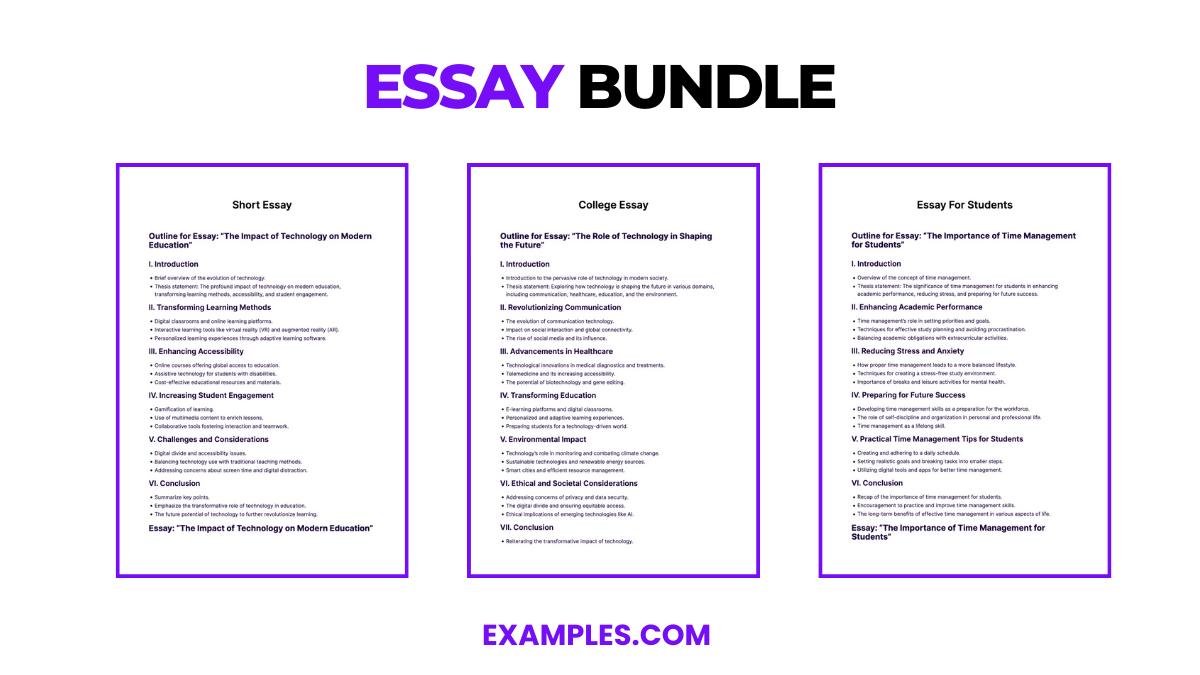
Download Essay Bundle
Most of us are probably familiar about what essays are. I would also have to assume that most of us have already written essays one even when we were younger. We were either tasked by our teacher to write one as a part of an examination or as a take-home project to be presented in the next session. Some consider essay writing a burden while others see it as an opportunity to express their thoughts and opinions. Because through writing, you get to write about things that you want others to know about and share a reflection through reflective essay . Your imagination becomes boundless and your ideas are limitless.
Short Essay Example
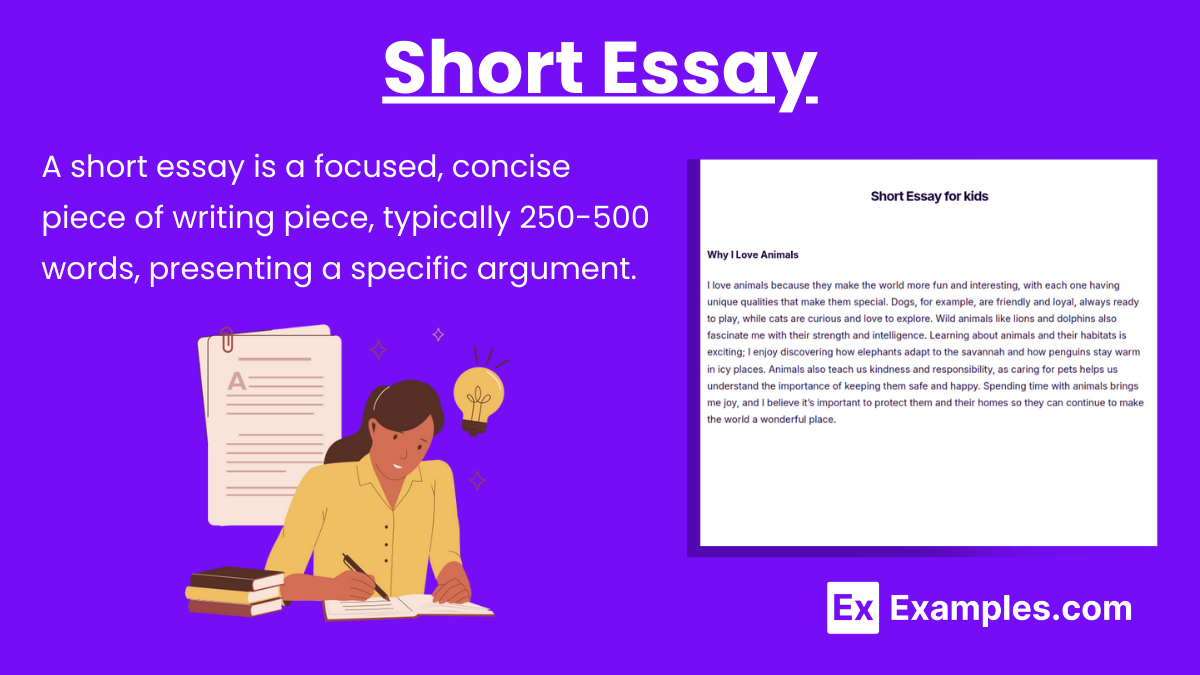
Free Download
College Essay
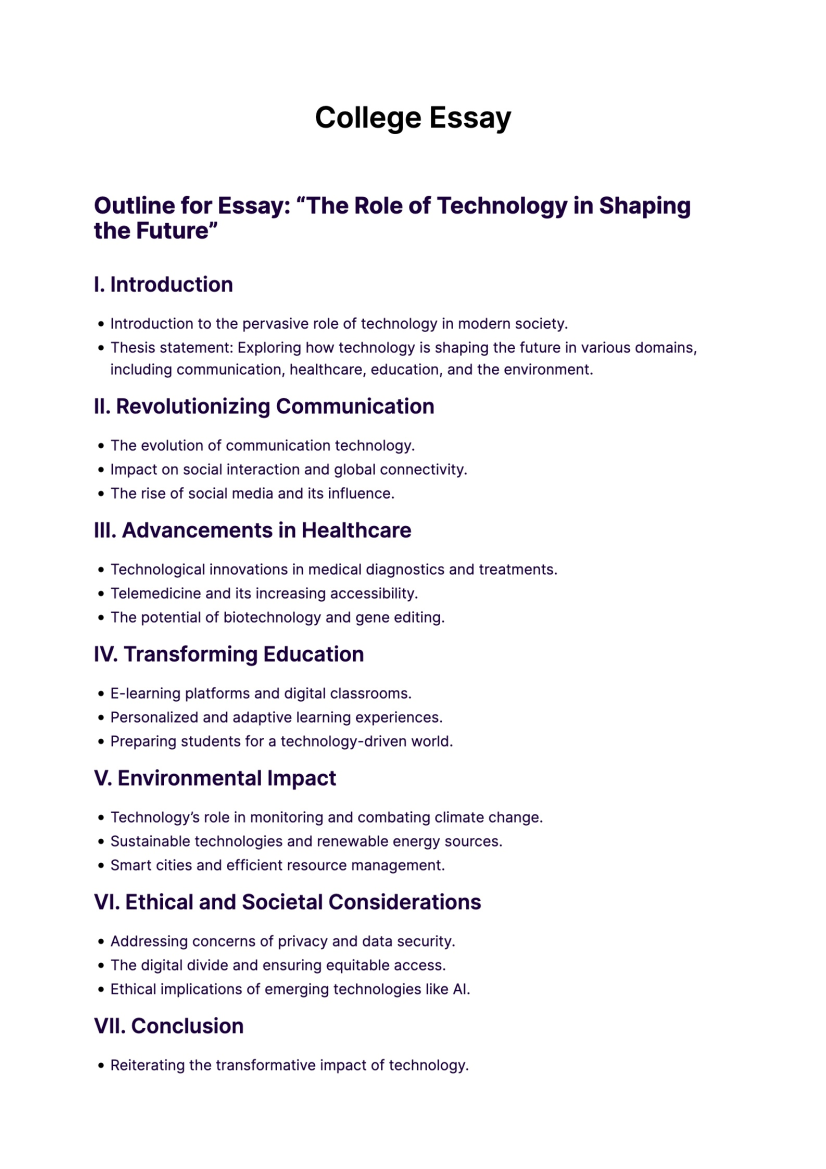

Essay For Students
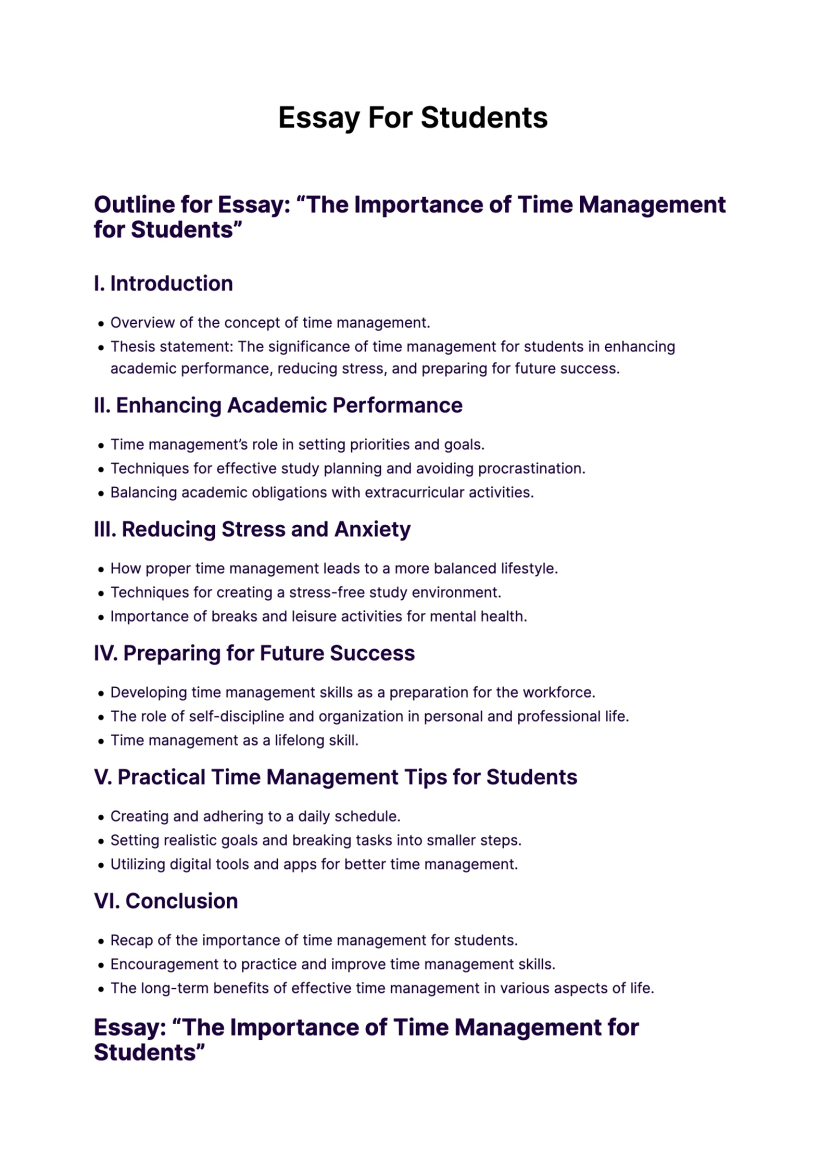
Free Biography Essay Outline Format Template
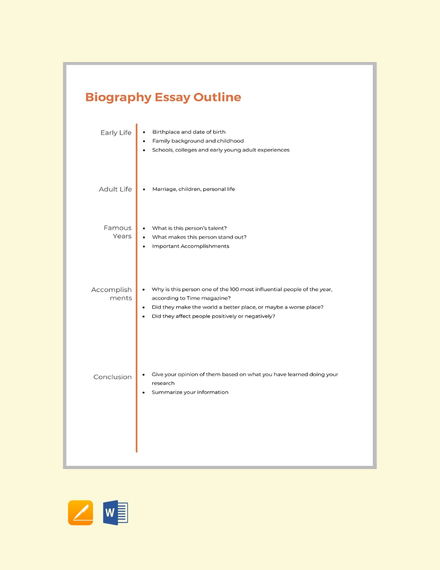
- Apple Pages
Free Essay Writing Plan Template
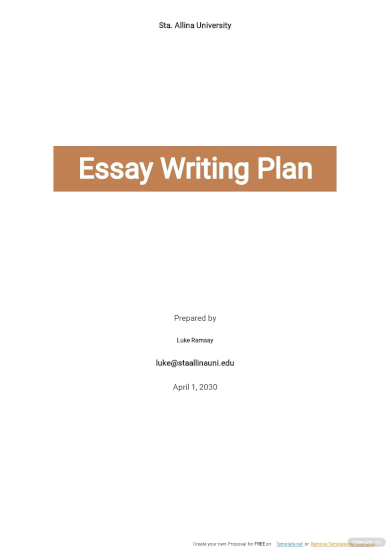
- Google Docs
Size: 24 KB
Free Essay Plan Mind Map Template
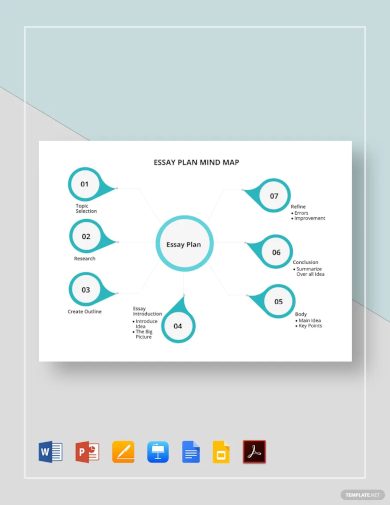
- Google Slides
- Apple Keynote
Size: 59 KB
Free Simple Essay Plan Template
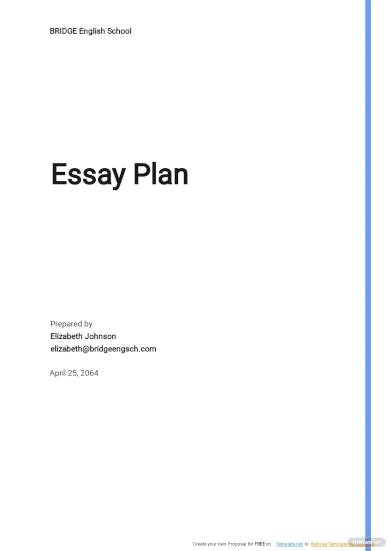
Size: 20 KB
Sample Illustration
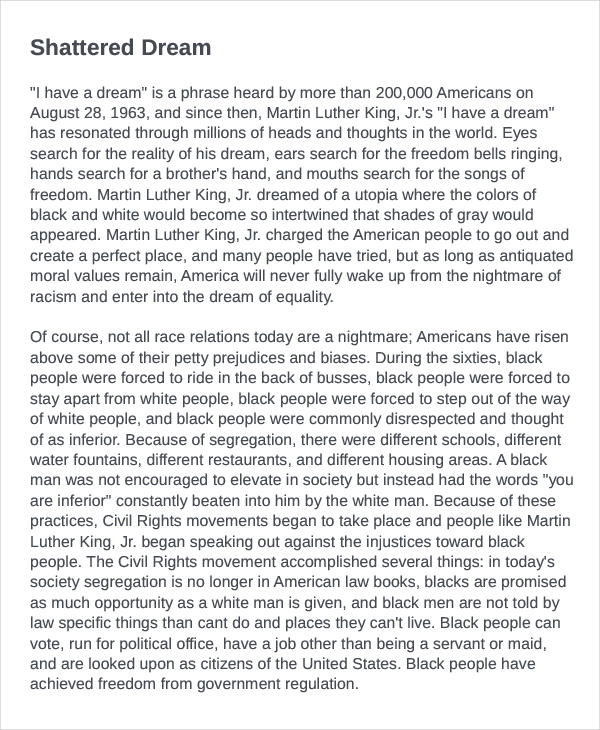
Size: 34 KB
Reflective Essay
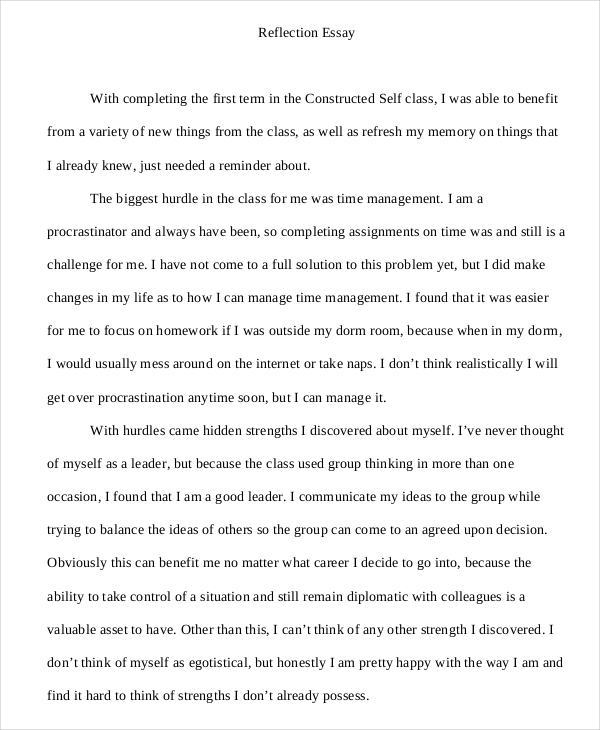
Autobiography Example
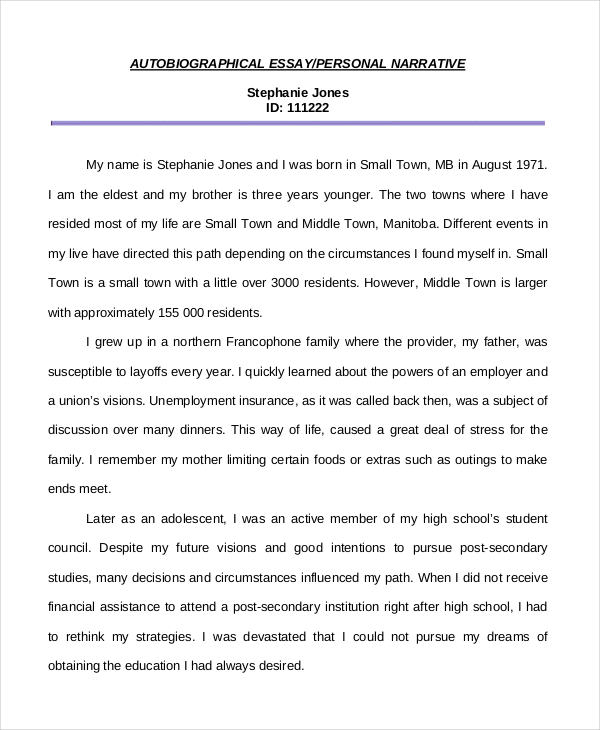
Size: 65 KB
Sample Descriptive
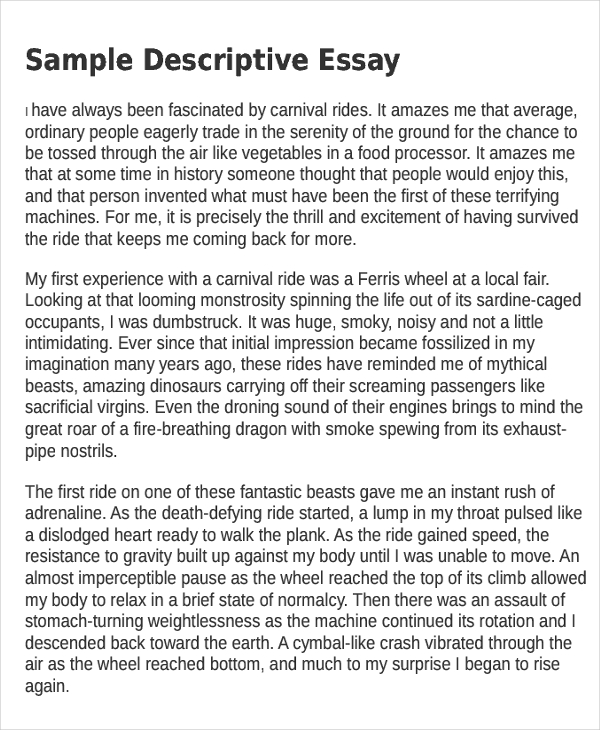
Size: 18 KB
What Is the Format of an Essay?
Essays, whichever type they come in, have a similar format. This serves as a guide for a writer to express his/her thoughts and ideas in a structured manner.
- Introduction. This is the opening part of the essay . It provides a brief overview and a preface of what the topic is all about. It is usually short but has to be interesting.
- Body. This is where the writer places his/her arguments and supporting statements for the topic. It can contain two to three paragraphs or depending on the length and scope of the subject.
- Conclusion. The summary writing of the whole essay is contained in the conclusion. It is a short recap of the main point presented in the essay.
How to Structure an Essay
To structure an essay, you need to simply follow the above format. Every essay, whether it be an informative essay or an analysis essay , has to contain the essential elements common among all essays. By following this format, the writer will have a guide to follow throughout the entire writing course.
It is a difficult process in essay writing when you do not have a structure to follow. You will have throw all of your ideas from here and there with no direction at all. Your paragraphs do not connect each other’s meaning as well as the entire thought of your essay could be incomprehensible.
Free Argumentative
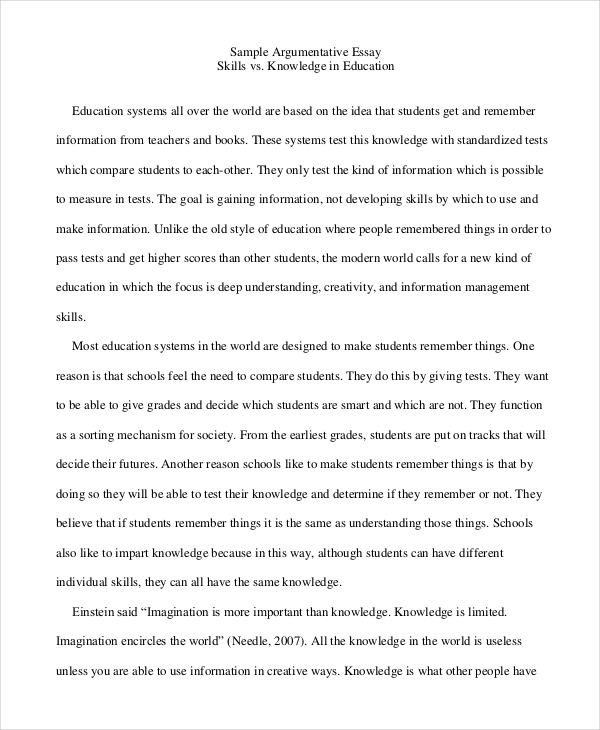
Size: 76 KB
Observation Essay
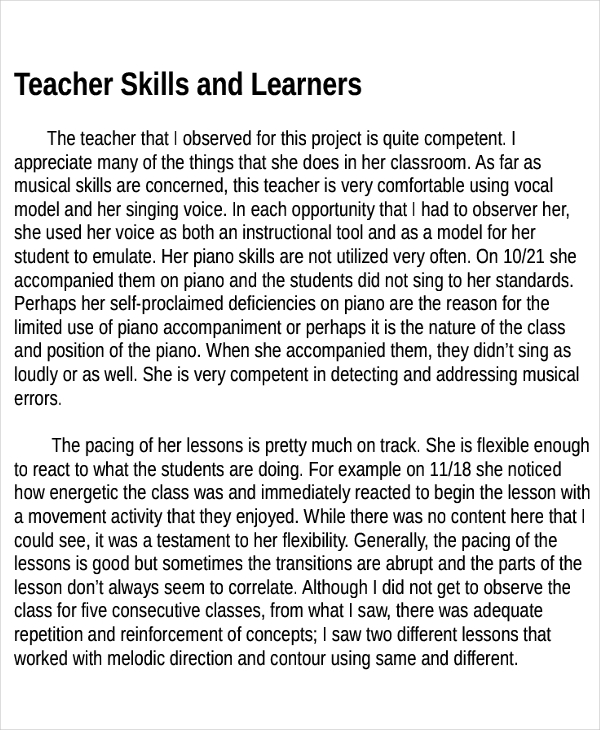
Free Response Sample
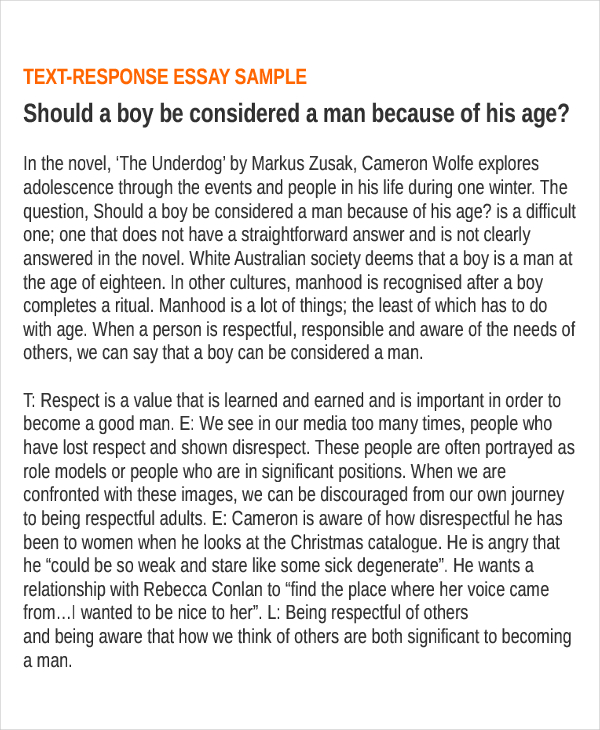
Size: 30 KB
Narrative Essay
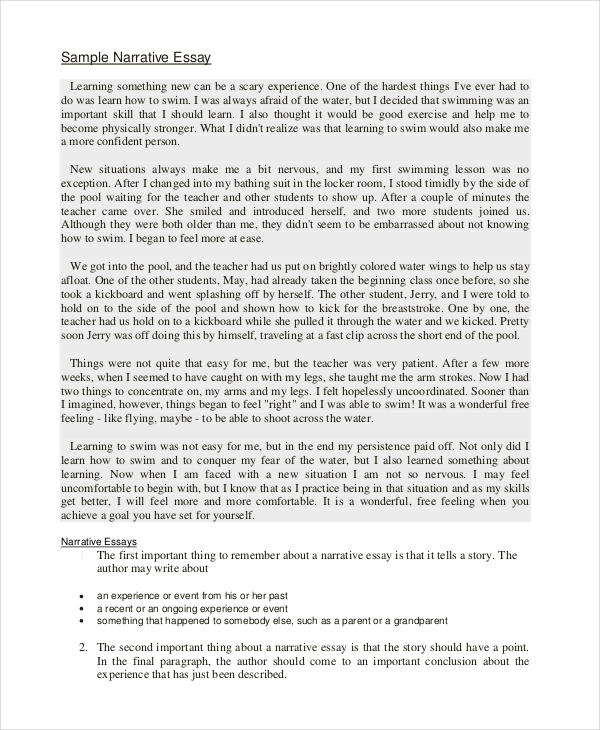
Size: 209 KB
Free Service Example
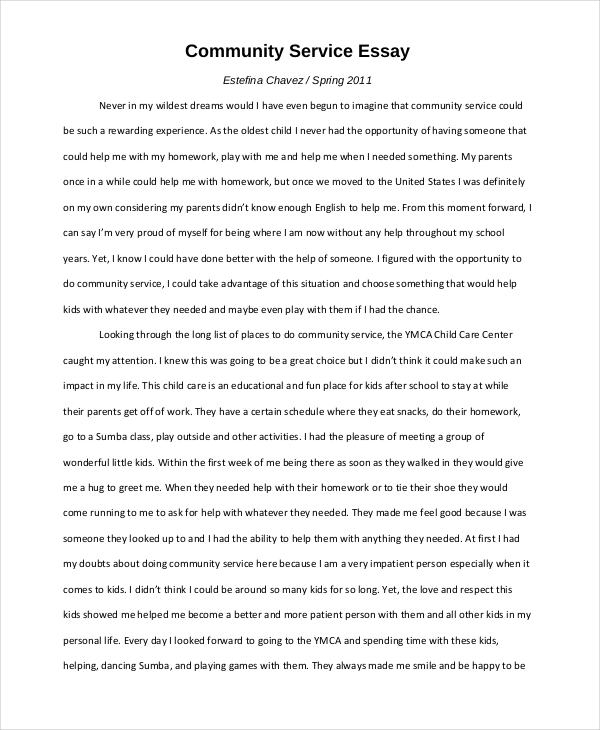
Size: 36 KB
Free Personal
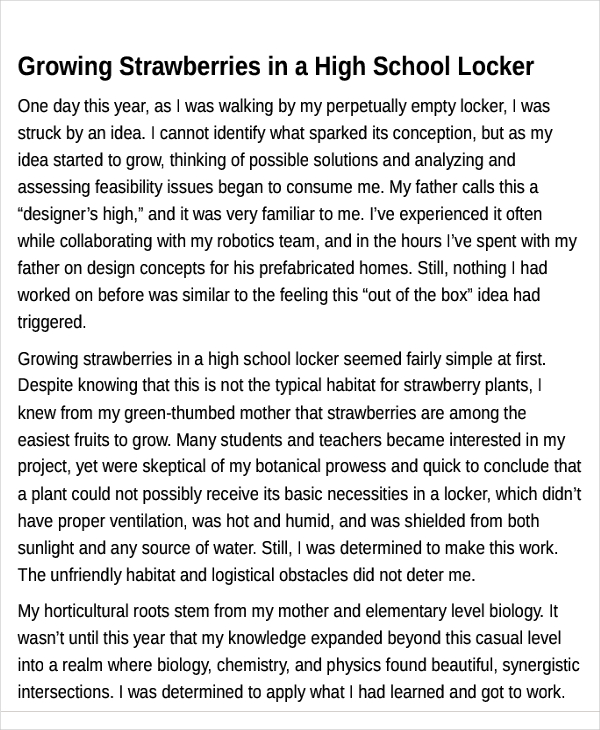
Size: 26 KB
Analytical Essay
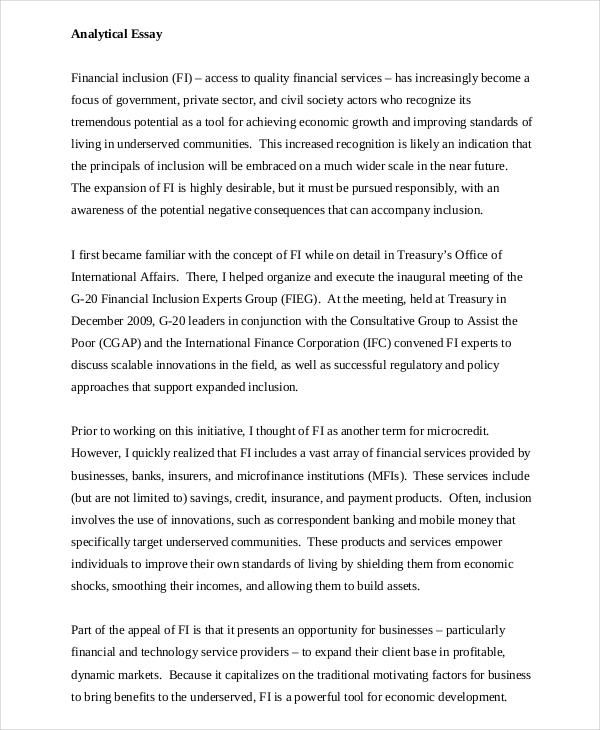
Size: 14 KB
Different Kinds of Essay
Writing an essay is a crucial part in academe life. You need to know how to write an effective essay as it is a common basis for a student’s grade. It is given as a common school assignment and a critical part in an examination set. To write an impressive short essay , especially during an examination, you need to be able to hit the question and provide a straightforward answer while at the same time observing the right structure of an essay.
Writing an essay could be difficult especially if you do not know the different kinds of essays which for sure, your teacher will be obliging you to write.
The easiest way to determine the type of an essay is to understand the writer’s point of view. Ask yourself what is the writer trying to tell and that by itself should provide a definite answer as to what type of essay it is. But to provide you a more comprehensible answer, here are the most common kinds of essay.
- Descriptive essay. A descriptive essay is aimed at portraying a picture through the use of words. The writer describes in great details a character, a place or a certain scenario which is directed at calling up the reader’s emotions.
- Reflective essay. In a reflective essay , the writer stirs the emotions of the readers by sharing a specific experience in life which is rather more important to him/her and which has a special place in his heart. It narrates a story and tells of the lessons and life-changing realizations drawn out from that experience.
- Expository essay. While a reflective essay deals on the emotions of the writer, an expository essay presents facts and verifiable data which presents a fair and unbiased analysis of a topic.
- Persuasive essay. The goal of persuasive essay is to present ideas and thoughts to readers and to convince them to believe or accept these. The writer aims at demonstrating his/her statements in a logical manner while at the same time appealing to the judgment of the readers.
Free Comparative Example
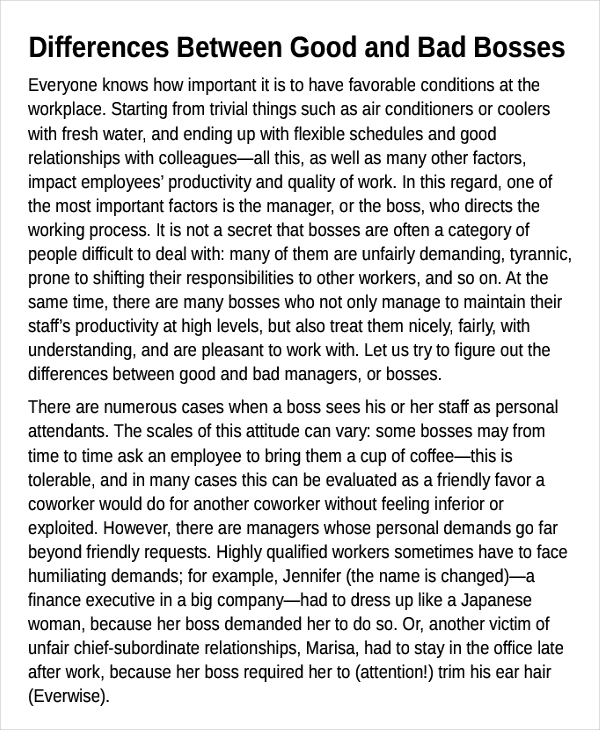
Size: 32 KB
Dialogue Essay
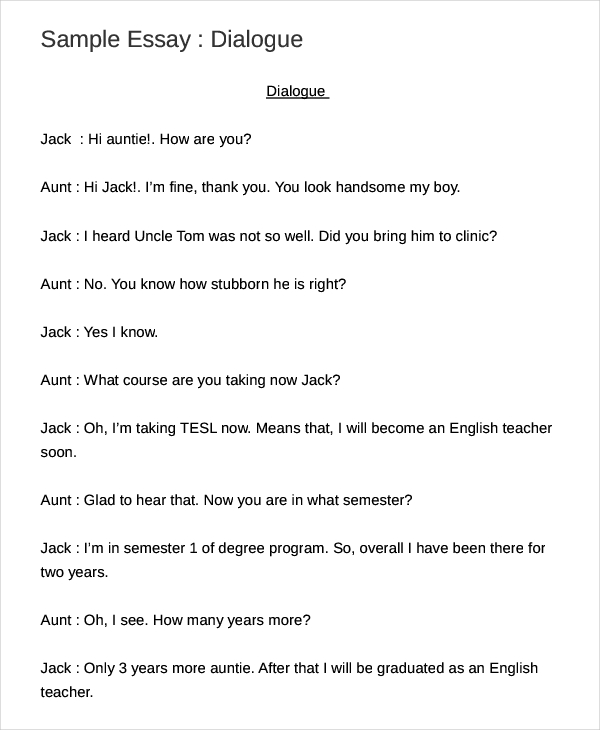
Free Economics Sample
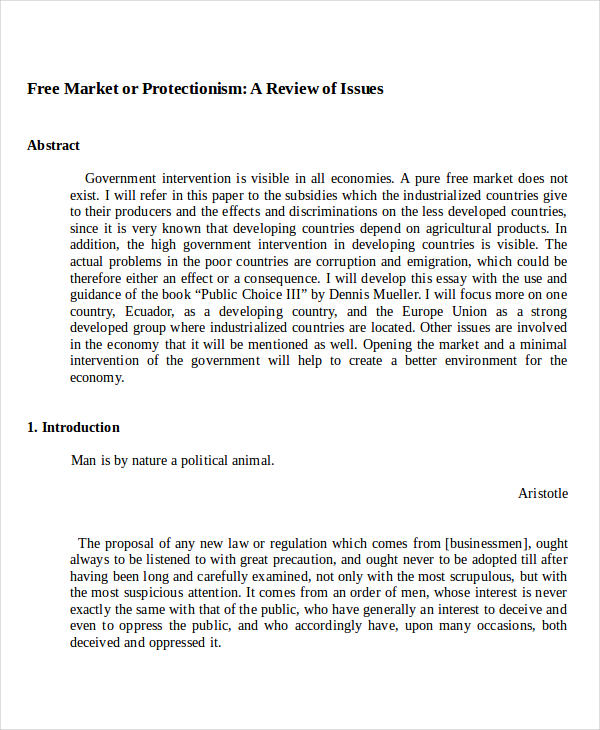
Size: 722 KB
Free Expository
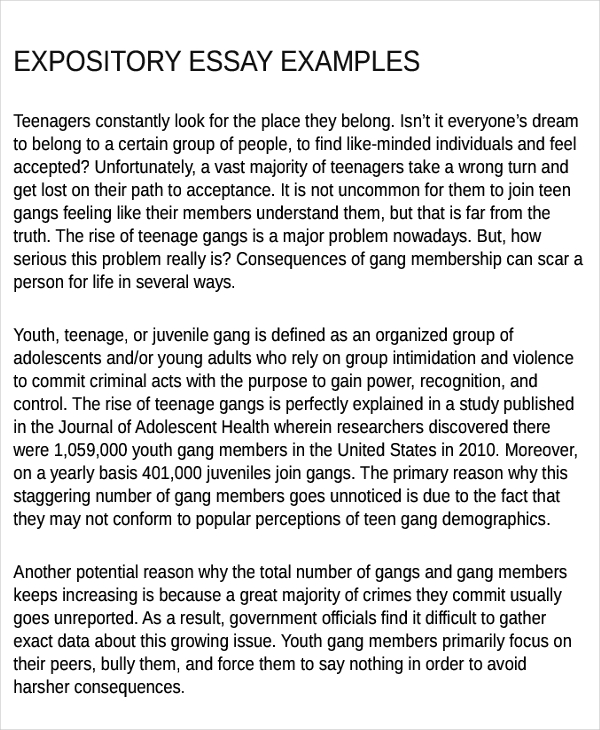
Size: 22 KB
Exploratory Example
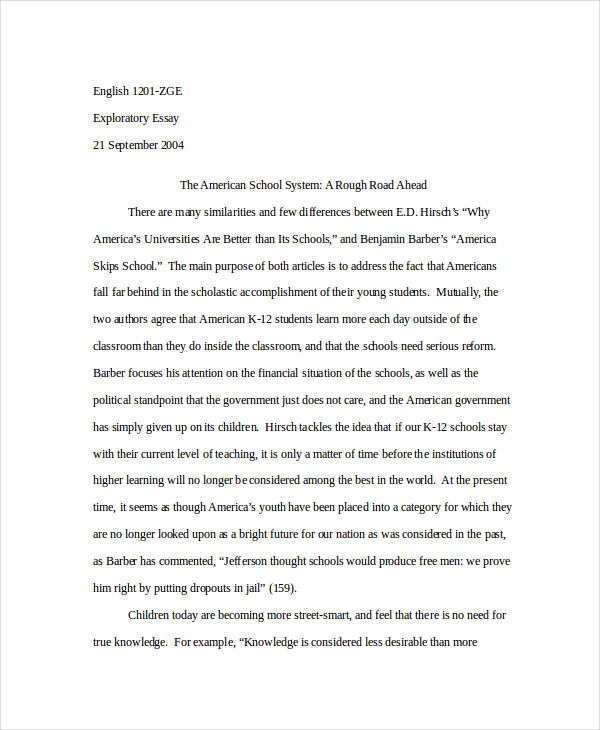
Importance of Essay
Essay writing is commonly practiced is schools. Students have to write essays depending on the teacher’s instructions or their desired style in writing.
Since there are different types of analysis essays , students can be creative and choose any style they want for as long as they can express their thoughts and of course, as long it as it is appropriate to what their teachers ask them to do.
However, essays have a very good importance not just to get good grades but also in expressing one’s emotions. An essay could be a channel for a student to workout his/her creative imagination and put it into writing.
Purpose of an Essay
We have all been through the struggles of having to think seriously of what to write about a topic that our teachers wanted us to write. I understand because I myself was at one time pressured because my classmates were all enthusiastic to write while I was sitting blank unsure of what I was supposed to do.
However, I realized that writing an content winning essay made me a better person. I was able to put into writing my thoughts which I have always kept in myself afraid of being laughed at. The purpose of an essay is to convey those emotions through words which we cannot do through actions.
Informative Essay
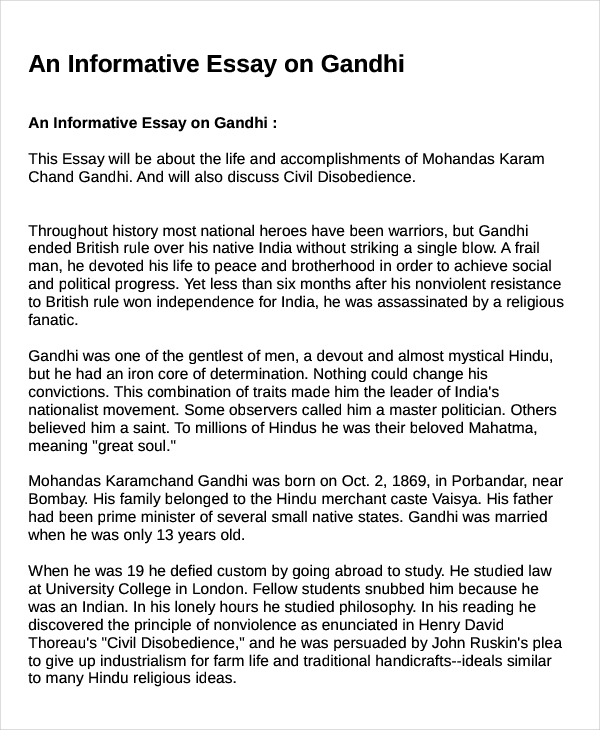
Free Leadership
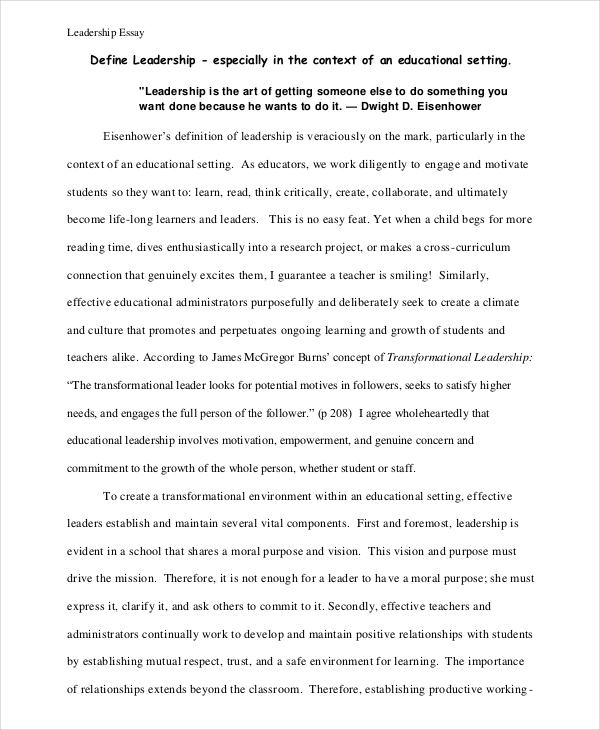
Size: 530 KB
Marketing Example
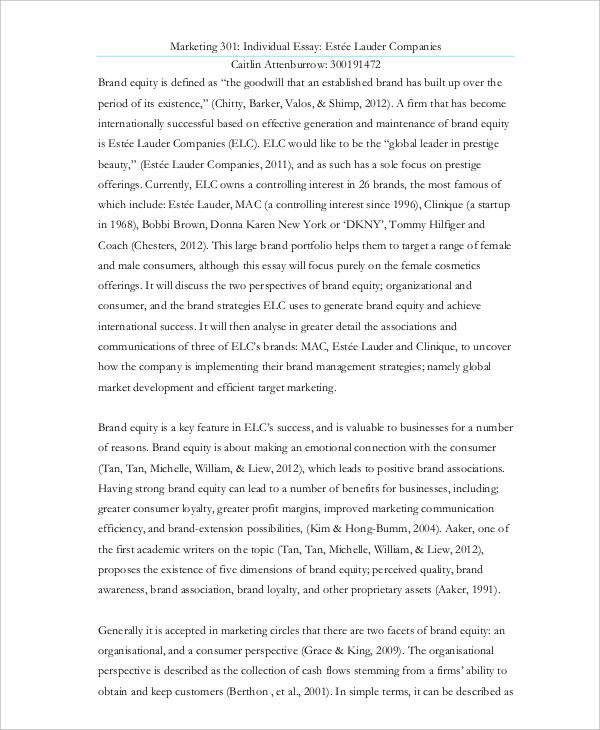
Nursing Essay
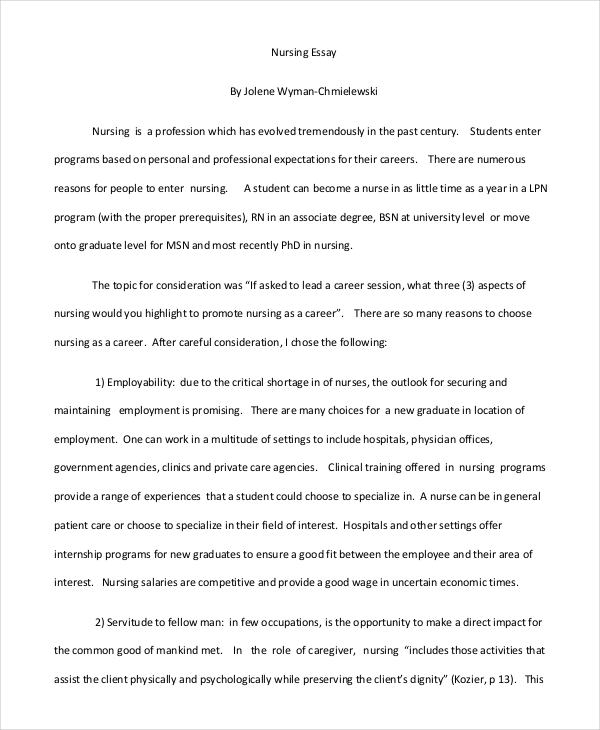
Size: 176 KB
Free Persuasive Sample
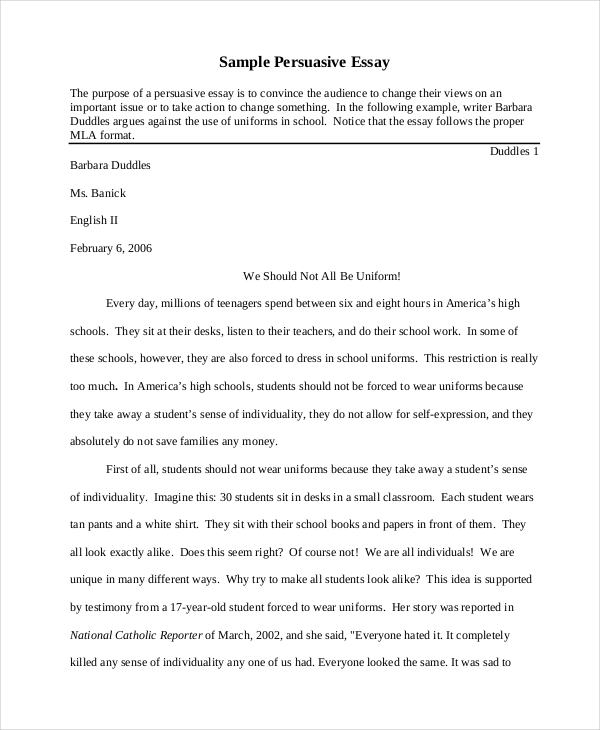
Process Essay Example
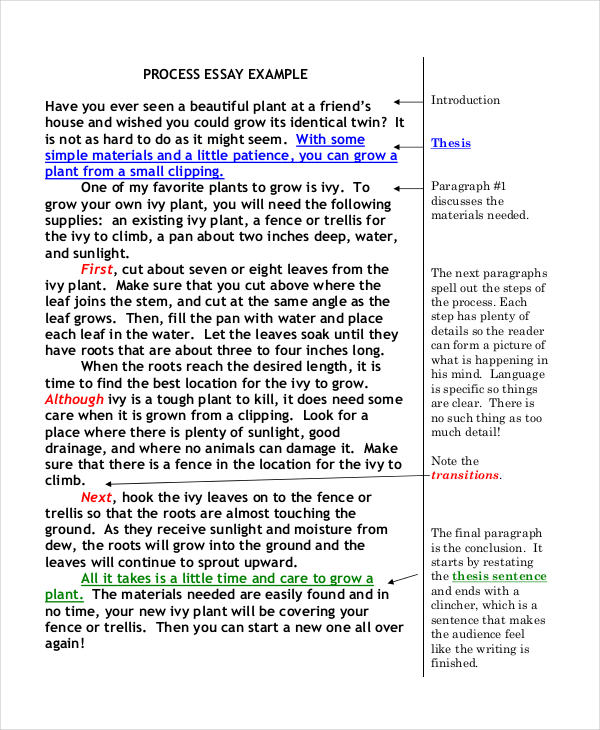
Size: 77 KB
Scholarship Essay
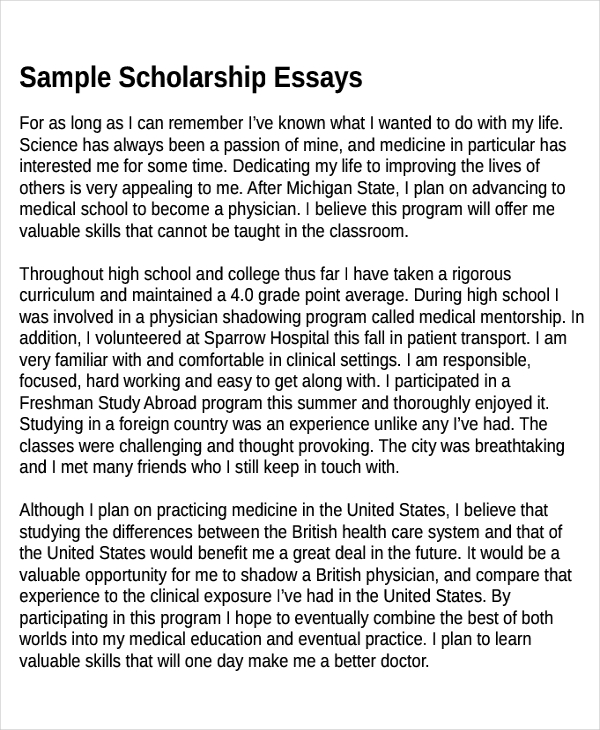
Guidelines for Essay Writing
Although we have to admit that writing an essay is not an easy task, being able to finish one is such a rewarding experience especially if it is an assignment you have to pass the next day. There is no perfect solution on how to write an effective essay .
However, there are certain guideline which you can use in order for you to make that outstanding essay.
- Choose your topic. Deciding what essay to write starts with choosing the right topic. Don’t just write something that everybody is interested to write about. Rather, pick a topic that you are most excited to write about so it would be easier for you to express your thoughts.
- Create a mind map . A mind map is a sketch of form or an essay outline used to organize information. This is best in order for you to logically express your thoughts and to present it in a coherent manner. Write your ideas in a draft paper and choose which ones to come first and which ones to use as your supporting arguments.
- Compose yourself. Having the right disposition is important in writing an essay. You need to have focus so that while you are writing, you are not distracted by outside thoughts which could ruin your momentum.
Our exploration of essay examples offers invaluable insights for effective essay writing. This guide has provided practical strategies and illustrative examples, empowering writers to craft compelling essays with confidence. Whether for academic achievement or personal expression, these tools and techniques are essential in navigating the diverse landscape of essay writing, ensuring your work is not only well-structured but also engaging and impactful.
Essay Generator
Text prompt
- Instructive
- Professional
Write an Essay on the benefits of reading for personal development.
Create an Essay exploring the impact of climate change on global weather patterns.
Essay Topics – List of 500+ Essay Writing Topics and Ideas
List of 500+ essay writing topics and ideas.
Essay topics in English can be difficult to come up with. While writing essays , many college and high school students face writer’s block and have a hard time to think about topics and ideas for an essay. In this article, we will list out many good essay topics from different categories like argumentative essays, essays on technology, environment essays for students from 5th, 6th, 7th, 8th grades. Following list of essay topics are for all – from kids to college students. We have the largest collection of essays. An essay is nothing but a piece of content which is written from the perception of writer or author. Essays are similar to a story, pamphlet, thesis, etc. The best thing about Essay is you can use any type of language – formal or informal. It can biography, the autobiography of anyone. Following is a great list of 100 essay topics. We will be adding 400 more soon!
But Before that you may wanna read some awesome Essay Writing Tips here .

Get the Huge list of 100+ Speech Topics here
Argumentative Essay Topics
- Should plastic be banned?
- Pollution due to Urbanization
- Education should be free
- Should Students get limited access to the Internet?
- Selling Tobacco should be banned
- Smoking in public places should be banned
- Facebook should be banned
- Students should not be allowed to play PUBG
Essay Topics on Technology
- Wonder Of Science
- Mobile Phone
Essay Topics on Festivals on Events
- Independence Day (15 August)
- Teachers Day
- Summer Vacation
- Children’s Day
- Swachh Bharat Abhiyan
- Janmashtami
- Republic Day
Essay Topics on Education
- Education Essay
- Importance of Education
- Contribution of Technology in Education

Essay Topics on Famous Leaders
- Mahatma Gandhi
- APJ Abdul Kalam
- Jawaharlal Nehru
- Swami Vivekananda
- Mother Teresa
- Rabindranath Tagore
- Sardar Vallabhbhai Patel
- Subhash Chandra Bose
- Abraham Lincoln
- Martin Luther King
- Lal Bahadur Shashtri
Essay Topics on Animals and Birds
- My Favorite Animal
Essays Topics About Yourself
- My Best Friend
- My Favourite Teacher
- My Aim In Life
- My Favourite Game – Badminton
- My Favourite Game – Essay
- My Favourite Book
- My Ambition
- How I Spent My Summer Vacation
- India of My Dreams
- My School Life
- I Love My Family
- My Favourite Subject
- My Favourite Game Badminton
- My Father My Hero
- My School Library
- My Favourite Author
- My plans for summer vacation
Essay Topics Based on Environment and Nature
- Global Warming
- Environment
- Air Pollution
- Environmental Pollution
- Water Pollution
- Rainy Season
- Climate Change
- Importance Of Trees
- Winter Season
- Deforestation
- Natural Disasters
- Save Environment
- Summer Season
- Trees Our Best Friend Essay In English
Essay Topics Based on Proverbs
- Health Is Wealth
- A Stitch in Time Saves Nine
- An Apple a Day Keeps Doctor Away
- Where there is a will, there is way
- Time and Tide wait for none
Toppr provides free study materials like NCERT Solutions for Students, Previous 10 Years of Question Papers, 1000+ hours of video lectures for free. Download Toppr app for Android and iOS or signup for free.
Essay Topics for Students from 6th, 7th, 8th Grade
- Noise Pollution
- Environment Pollution
- Women Empowerment
- Time and Tide Wait for none
- Science and Technology
- Importance of Sports
- Sports and Games
- Time Management
- Cleanliness is next to Godliness
- Cleanliness
- Rome was not Built in a Day
- Unemployment
- Clean India
- Cow Essay In English
- Describe Yourself
- Festivals Of India
- Ganesh Chaturthi
- Healthy Food
- Importance Of Water
- Plastic Pollution
- Value of Time
- Honesty is the Best Policy
- Gandhi Jayanti
- Human Rights
- Knowledge Is Power
- Same Sex Marriage
- Childhood Memories
- Cyber Crime
- Kalpana Chawla
- Punctuality
- Rani Lakshmi Bai
- Spring Season
- Unity In Diversity
- Artificial Intelligence
- Online Shopping
- Indian Culture
- Healthy Lifestyle
- Indian Education System
- Disaster Management
- Environmental Issues
- Freedom Fighters
- Grandparents
- Save Fuel For Better Environment
- Importance Of Newspaper
- Lal Bahadur Shastri
- Raksha Bandhan
- World Environment Day
- Narendra Modi
- What Is Religion
- Charity Begins at Home
- A Journey by Train
- Ideal student
- Save Water Save Earth
- Indian Farmer
- Safety of Women in India
- Sarvepalli Radhakrishnan
- Capital Punishment
- College Life
- Natural Resources
- Peer Pressure
- Nature Vs Nurture
- Romeo And Juliet
- Generation Gap
- Makar Sankranti
- Constitution of India
- Girl Education
- Importance of Family
- Importance of Independence Day
- Brain Drain
- A Friend In Need Is A Friend Indeed
- Action Speaks Louder Than Words
- All That Glitters Is Not Gold
- Bhagat Singh
- Demonetization
- Agriculture
- Importance of Discipline
- Population Explosion
- Poverty in India
- Uses Of Mobile Phones
- Water Scarcity
- Train Journey
- Land Pollution
- Environment Protection
- Indian Army
- Uses of Internet
- All that Glitters is not Gold
- Balanced Diet
- Blood Donation
- Digital India
- Dussehra Essay
- Energy Conservation
- National Integration
- Railway Station
- Sachin Tendulkar
- Health And Hygiene
- Importance Of Forest
- Indira Gandhi
- Laughter Is The Best Medicine
- Career Goals
- Mental Health
- Save Water Save Life
- International Yoga Day
- Winter Vacation
- Soil Pollution
- Every Cloud Has A Silver Lining
- Indian Culture And Tradition
- Unity Is Strength
- Unity is Diversity
- Wildlife Conservation
- Cruelty To Animals
- Nelson Mandela
- Of Mice And Men
- Organ Donation
- Life in a Big City
- Democracy in India
- Waste Management
- Biodiversity
- Afforestation
- Female Foeticide
- Harmful Effects Of Junk Food
- Rain Water Harvesting
- Save Electricity
- Social Media
- Social Networking Sites
- Sound Pollution
- Procrastination
- Life in an Indian Village
- Life in Big City
- Population Growth
- World Population Day
- Greenhouse Effect
- Statue of Unity
- Traffic Jam
- Beti Bachao Beti Padhao
- Importance of Good Manners
- Good Manners
- Cyber Security
- Green Revolution
- Health And Fitness
- Incredible India
- Make In India
- Surgical Strike
- Triple Talaq
- A Good Friend
- Importance of Friends in our Life
- Should Plastic be Banned
- Nationalism
- Traffic Rules
- Effects of Global Warming
- Fundamental Rights
- Solar System
- National Constitution Day
- Good Mother
- Importance of Trees in our Life
- City Life Vs Village Life
- Importance of Communication
- Conservation of Nature
- Man vs. Machine
- Indian Economy
- Mothers Love
- Importance of National Integration
- Black Money
- Greenhouse effect
- Untouchability
- Self Discipline
- Global Terrorism
- Conservation of Biodiversity
- Newspaper and Its Uses
- World Health Day
- Conservation of Natural Resources
- A Picnic with Family
- Indian Heritage
- Status of Women in India
- Child is Father of the Man
- Reading is Good Habit
- Plastic Bag
- Terrorism in India
- Library and Its Uses
- Life on Mars
- Urbanization
- Pollution Due to Diwali
- National Flag of India
- Vocational Education
- Importance of Tree Plantation
- Summer Camp
- Vehicle Pollution
- Women Education in India
- Seasons in India
- Freedom of the Press
- Caste System
- Environment and Human Health
- Mountain Climbing
- Depletion of Natural Resources
- Ishwar Chandra Vidyasagar
- Health Education
- Effects of Deforestation
- Life after School
- Starvation in India
- Jan Dhan Yojana
- Impact of Privatization
- Election Commission of India
- Election and Democracy
- Prevention of Global Warming
- Impact of Cinema in Life
- Subhas Chandra Bose
- Dowry System
- Ganesh Chaturthi Festival
- Role of Science in Making India
- Impact of Global Warming on Oceans
- Pollution due to Festivals
- Ambedkar Jayanti
- Ek Bharat Shreshtha Bharat
- Family Planning in India
- Democracy vs Dictatorship
- National Festivals of India
- Sri Aurobindo
- Casteism in India
- Organ trafficking
- Consequences of Global Warming
- Role of Human Activities in Global Warming
- Issues and Problems faced by Women in India
- Role of Judiciary in the Country Today
- Sugamya Bharat Abhiyan
- PUBG Mobile Game Addiction
- Role of Youths in Nation Building
- Value of Oxygen and Water in Life/Earth
- Farmer Suicides in India
- Start-up India
- Pollution Due to Firecrackers
- Life of Soldiers
- Child Labour
- Save Girl Child
- Morning Walk
- My School Fete
- Essay on Financial Literacy
- Essay On Sustainable Development
- Essay On Punjab
- Essay On Travel
- My Home Essay
- Child Marriage Essay
- Importance Of English Language Essay
- Essay On Mass Media
- Essay On Horse
- Essay On Police
- Essay On Eid
- Essay On Solar Energy
- Animal Essay
- Essay On Mango
- Gender Discrimination Essay
- Essay On Advertisement
- My First Day At School Essay
- My Neighborhood Essay
- True Friendship Essay
- Work Is Worship Essay
- Essay On Self Confidence
- Essay On Superstition
- Essay On Bangalore
- Sex Vs Gender Essay
- Essay On Social Issues
- Time Is Money Essay
- Essay About Grandmothers
- Essay On Hard Work
- First Day Of School Essay
- Flowers Essay
- My Favorite Food Essay
- Essay on Birds
- Essay on Humanity
- Essay on Sun
- Essay on Kargil War
- Every Cloud Has a Silver Lining Essay
- Francis Bacon Essays
- Importance of Cleanliness Essay
- My Sister Essay
- Self Introduction Essay
- Solar Energy Essay
- Sports Day Essa
- Value Of Education Essay
- Essay On Isro
- Essay On Balance Is Beneficial
- Essay On Reservation In India
- Essay On Water Management
- Essay On Smoking
- Essay On Stress Management
- Essay On William Shakespeare
- Essay on Apple
- Essay On Albert Einstein
- Essay On Feminism
- Essay On Kindness
- Essay On Domestic Violence
- Essay on English as a Global Language
- Essay On Co-Education
- Importance Of Exercise Essay
- Overpopulation Essay
- Smartphone Essay
- Essay on River
- Essay on Cyclone
- Essay On Facebook
- Essay On Science In Everyday Life
- Essay On Women Rights
- Essay On Right To Education
- Essay on Quotes
- Essay On Peace
- Essay On Drawing
- Essay On Bicycle
- Essay On Sexual Harassment
- Essay On Hospital
- Essay On Srinivasa Ramanujan
- Essay On Golden Temple
- Essay On Art
- Essay On Ruskin Bond
- Essay On Moon
- Birthday Essay
- Dont Judge A Book By Its Cover Essay
- Draught Essay
- Gratitude Essay
- Indian Politics Essay
- Who am I Essay
- Essay on Positive Thinking
- Essay on Dance
- Essay on Navratri
- Essay on Onam
- Essay on New Education Policy 2020
- Esasy on Thank you Coronavirus Helpers
- Essay on Coronavirus and Coronavirus Symptoms
- Essay on Baseball
- Essay on coronavirus vaccine
- Fitness beats pandemic essay
- Essay on coronavirus tips
- Essay on coronavirus prevention
- Essay on coronavirus treatment
- Essay on essay on trees
- Essay on television
- Gender inequality essay
- Water conservation essay
- Essay on Gurpurab
- Essay on Types of sports
- Essay on road safety
- Essay on my favourite season
- My pet essay
- Student life essay
- Essay on Railway station
- Essay on earth
- Essay on knowledge is power
- Essay on favourite personality
- Essay on memorable day of my life
- My parents essay
- Our country essay
- Picnic essay
- Travelling essay
Customize your course in 30 seconds
Which class are you in.

- Letter Writing
- It So Happened Summary
- Honey Dew Chapter Summaries
- The Alien Hand
- Malu Bhalu Summary
- Sing a Song of People Summary
- The Little Bully Summary
- Nobody’s Friend Summary
- Class Discussion Summary
- Crying Summary in English
Leave a Reply Cancel reply
Your email address will not be published. Required fields are marked *
Download the App

Essay samples for every taste and need
Find the perfect essay sample that you can reference for educational purposes. Need a unique one?

Choose samples by essay type
The font type, compare and contrast, how to craft a good essay writing sample.
Additionally, it's important to understand the essay prompt and requirements before starting to write. Brainstorming, creating an outline, and conducting research are also crucial steps. Once these steps are completed, you can begin writing your essay by following the outline and incorporating your research. Finally, proofread and edit your essay to ensure it is error-free and flows well.If you need more guidance, you can always seek the help of a professional writer from a custom essay writing service. Alternatively, you can find inspiration and guidance by looking for high school sample essays that cover a similar topic to the one you're working on. These can provide you with ideas on how to structure your essay, what to include, and how to approach your argument. So, if you're struggling to write an essay , don't hesitate to find a great sample essay or ask a professional writer to write an essay for you!
- Choose both an essay type and its format
- Brainstorm to find a topic
- Develop a thesis statement
- Make an essay outline
- Write the first draft
- Expand on the drafts
- Edit and proofread
Regular new academic essay sample
William shakespear romeo and juliet, how to stop cyber bullying essay, what rights should animals have, essay about police brutality, overpopulation as a global environmental crisis: concept and prevention, teenage pregnancy prevention programs, how to use our essay samples.
Think of the essays on this website as inspirational research. They are not meant to be presented as your own work. Any sample of essay writing found here is intended to be a tool to help students further understand the topic and develop their own ideas. Copying sections of an essay sample for college would be considered plagiarism and would violate the honor code and may result in disciplinary action. Please think of the material as an additional study aid, but we strongly recommend that students develop their own ideas and write their own words.
Writing is challenging, so use our samples as a basis for new viewpoints, how to structure your essay, and as a source of inspiration.

Frequently asked questions
Where to find a free essay sample online, where to find good sample essay papers to ignite your inspiration, how do i properly cite my sources, is it legal, how to avoid accidentally plagiarizing when i paraphrase a quote, why are your samples better, examples as study materials.
Essay samples have a proven track record of improving a students academic performance. Many high-schools and higher education institutes give essay examples as study materials, especially to explore a topic more deeply. Many academic institutions don't have access to a diverse range of high quality essay samples though, and that's where Studyfy steps in! Our samples cover a huge variety of topics and will be invaluable in helping you to study.
Always here to help
Having trouble with finding the right sample for your topic? Don't worry! The first thing you should do is reach out to a member of our support team and ask them if they can source the right sample. If they can't, then you can always order an essay sample from one of our professional writers. We are committed to helping students with the assignments that they find challenging!
No more struggle
Over the course of your higher education, you will be asked to write papers on a wide variety of topics. While certain topics might be of interest to you, others won't be. It's often these papers that students struggle with the most. Maybe you're not a fan of classic literature, maybe the dreaded foundation or general education courses have forced you to take a science class. Don't let a single course affect your grades! Essay samples, your creativity, Studyfy homework help, online proofreading and essay editing service, custom essay , admission essay writing service , and " write paper for me " services are the perfect tools to give you inspiration and help you with unpleasant essays!
Free features

Essay Examples & Writing Tips for ESL/EFL Students (updated 2024)
In this lesson you will find simple essay examples for ESL, EFL and university students. Additional writing tips also show how to write a proper essay with minimal mistakes.
Writing essays is a powerful way to improve your language skills and express your thoughts. In our article, “Essay Examples for ESL/EFL Students,” we embark on a journey through the world of essays, offering you valuable examples and insights to help you gain confidence in your English writing abilities.
Essay Examples and Tips For ESL Students
Sample essay 1. my hobby.
My favorite hobby is playing drums. I spend a lot of my free time playing drums. I started learning to play drums when I was 9 years old. I played in my school’s band. When I was 12, I got a private drum teacher and started to really enjoy playing.
My parents bought me a drum set and I started practicing every day after school. It was very loud, but my mother never complained. I improved a lot, and playing drums has been my favorite hobby ever since.
Now, I play drums in a band with my friend Dan, who plays guitar. We write songs, perform, and practice twice a week. It’s still as fun as it was when I first started playing!
Answer these questions in your essay:
What is your hobby? When did you start doing this hobby? Why do you like doing this hobby? How did you learn this hobby? When do you usually do this hobby? How often do you do this hobby?(every day, one a week, twice a month, on weekends, etc.)
Use this sentence pattern in your essay: start/stop verb+ing I started playing basketball when I was 5 years old. I started reading novels when I was very young
Sentence pattern: verb+ing
When you put a verb after start , begin , stop , finish , or quit , you must add “ ‐ing ”
Examples: I started studying English in 3rd grade. I finished writing my homework at 11:00 last night. My father quit smoking because it is unhealthy. We began dating when we met last year.
Check Also: Essay Writing Tips & How to Avoid Typical Mistakes Short Essay Examples for ESL Students 20 Useful Vocabulary & Phrases to Start Your Essay Argumentative Essay Topics With Points for Students
SAMPLE ESSAY 2. My Favorite Place
Usually when you ask people what their favorite place is, they will talk about a distant place – maybe a beach or a beautiful mountain. But my favorite place is not far away at all. My favorite place is the forest behind my house.
Although the forest behind my house is not very big, when I was little I thought it was huge! There are so many interesting places to play and hide. I can sit on the big rocks and have a picnic, I can climb the tall trees, or I can look for lizards and other little animals.
Even though I have played there many times, I can still spend all afternoon running, playing, and hiking in the forest behind my house.
The forest behind my house is a magical place. If I am in a bad mood, I will go there to be alone and think. When I was little, I liked to imagine that there were magical people who lived in the forest. When I grow up and have children, I hope that they can live near such a special place, too.
Sentence pattern: (not) …at all “at all” means “not even a little”, and you usually put it at the end of a negative sentence (a sentence with “not”).
Example: Brian: Are you hungry: Dave: I just ate dinner. I’m not hungry at all.
Check Also: Essay Writing Tips & How to Avoid Typical Mistakes ✅ Useful Academic Expressions & Phrases For Essay Writing

SAMPLE ESSAY 3. My Best Friend
A best friend is a person you can count on, someone who will always be there to put a smile on your face when you need it. This is why I call Nathan my best friend.
I first met Nathan in second grade. His family just moved here from another town and he didn’t have any friends. We started talking, and one day I went to his house to play video games. Soon, we were hanging out every day, and we stayed at each other’s houses on the weekends.
Nathan and I have a lot in common. We both like jokes, and we both love to play soccer. In summer, we go to the swimming pool and eat ice cream cones. Next year, we are going to learn to play tennis together.
Best of all, I can tell Nathan my secrets, and I know he won’t tell anyone. I call him my best friend because I trust him, because he is a lot of fun, and because we like the same things. I hope our friendship lasts forever!
Sentence pattern: [Subject] lasts [amount of time]
Use this to describe how long something is (how long it “lasts”)
Examples: That is a long movie. It lasts almost 3 hours . Summer vacation lasts about 2 months . The cell phone battery lasts about 1 year . After 1 year, you will need to buy a new one. When my girlfriend broke up with me, she said, “ Nothing lasts forever .”
SAMPLE ESSAY 4. Trip to the Zoo
Going to the zoo is a fun and interesting way to spend a day. The last time I went to the zoo was two months ago, during summer vacation. I went with my mother, father, and sister, and it was a trip that I will never forget.
We saw all kinds of animals at the zoo. We saw monkeys, snakes, and even a lion! In addition, there were birds, lizards, and several different kinds of fish. We got to see an eel, and octopus, and a small shark. My favorite animal was the elephant. It was so huge! We fed the elephants peanuts, and it sprayed us with water!
Although the zoo is very exciting, sometimes it makes me sad to see all the animals in cages. They cannot walk, run, or fly freely. However, it is good that people can go to the zoo and learn about these animals. Therefore, I’m glad we have such a nice zoo in my city
Essay Writing Tips For ESL students:
Writing essays might seem tricky, but with a few simple tips, you can make it easier and better. Especially if English is not your first language, here are some straightforward suggestions:
- Start with a Plan: Before you begin writing, take a moment to think about your main ideas. Make a simple outline with your introduction, main points, and conclusion. It’s like making a roadmap for your essay.
- Use Simple Words: Don’t try to impress with big words. It’s better to use words you know well. Simple words can be just as effective and make your writing clearer.
- One Idea per Paragraph: Each paragraph should talk about one main idea. This makes your essay organized and easy to follow. Start a new paragraph when you move to a new topic.
- Check for Mistakes: After you finish writing, go back and check for mistakes. Look for spelling, grammar, and punctuation errors. It’s a small step, but it makes a big difference.
- Connect Your Ideas: Use words like “but,” “and,” and “so” to connect your ideas. This helps your writing flow smoothly. Remember to put a comma after these words at the beginning of a sentence.
- Read Out Loud: After you’ve written your essay, read it out loud. This helps you catch mistakes and see if your sentences sound right.
- Keep It Simple: Stick to the point. Don’t make your sentences too long or complicated. It’s better to have short, clear sentences.
You May Also Like
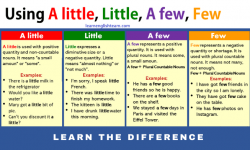
Difference Between A Little & Little, A Few & Few ✅
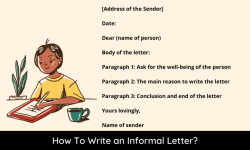
Informal English Letter Example and How to Write an Informal Letter

How to Paraphrase Online for Creative English Writing?
Thanks for the essay examples
Hello Fahim, could we have a friendship with you?
IELTS Preparation with Liz: Free IELTS Tips and Lessons, 2024
- Test Information FAQ
- Band Scores
- IELTS Candidate Success Tips
- Computer IELTS: Pros & Cons
- How to Prepare
- Useful Links & Resources
- Recommended Books
- Writing Task 1
- Writing Task 2
- Speaking Part 1 Topics
- Speaking Part 2 Topics
- Speaking Part 3 Topics
- 100 Essay Questions
- On The Day Tips
- Top Results
- Advanced IELTS
100 IELTS Essay Questions
Below are practice IELTS essay questions and topics for writing task 2. The 100 essay questions have been used many times over the years. The questions are organised under common topics and essay types. IELTS often use the similar topics for their essays but change the wording of the essay question.
In order to prepare well for writing task 2, you should prepare ideas for common topics and then practise applying them to the tasks given (to the essay questions). Also see model essays and tips for writing task 2.
Below you will find:
- Essay Questions By Topic
- Essay Questions by Essay Type
Please also note that my new Grammar E-book is now available in my store along with my Ideas for Essay Topics E-book and Advanced Writing Lessons. To visit store, click here: Liz’s Store
1) Common IELTS Essay Questions
IELTS practice essay questions divided by topic. These topics have been reported by IELTS students in their tests. Essay questions have been recreated as accurately as possible.
- Art (5 essay questions)
- Business & Money (17 essay questions)
- Communication & Personality (20 essay questions)
- Crime & Punishment (12 essay questions)
- Education (17 essay questions)
- Environment (12 essay questions)
- Family & Children (8 essay questions)
- Food & Diet (13 essay questions)
- Government (6 essay questions)
- Health (9 essay questions)
- Housing, Buildings & Urban Planning (8 essay questions)
- Language (6 essay questions)
- Leisure (1 essay question)
- Media & Advertising (12 essay questions)
- Reading (5 essay questions)
- Society (10 essay questions)
- Space Exploration (3 questions)
- Sport & Exercise (6 essay questions)
- Technology (6 essay questions)
- Tourism and Travel (11 essay questions)
- Transport (7 essay questions)
- Work (17 essay questions)
2) IELTS Essay Questions by Essay Type
There are 5 main types of essay questions in IELTS writing task 2 (opinion essays, discussion essay, advantage/disadvantage essays, solution essay and direct question essays). Click on the links below to see some sample essay questions for each type.
- Opinion Essay Questions
- Discussion Essay Questions
- Solution Essay Questions
- Direct Questions Essay Titles
- Advantage / Disadvantage Essay Questions
………………………………
FREE SUBSCRIBE : Get New Lessons & Posts by Email
Type your email…
Advanced IELTS Lessons & E-books

Recent Lessons
Ielts liz personal update 2024, ielts model essay -two questions essay type, ielts bar chart of age groups 2024, ielts topic: urban planning, ielts listening transcripts: when and how to use them, 2024 ielts speaking part 1 topics.

Click Below to Learn:
- IELTS Test Information
Copyright Notice
Copyright © Elizabeth Ferguson, 2014 – 2024
All rights reserved.
Privacy Policy & Disclaimer
- Click here: Privacy Policy
- Click here: Disclaimer
Return to top of page
Copyright © 2024 · Prose on Genesis Framework · WordPress · Log in
Beginners Writing Prompts: 25 Ideas to Get Your Creative Juices Flowing
By: Author Paul Jenkins
Posted on August 3, 2023
Categories Writing
Writing is an art form that can be challenging to master. Beginners may find it difficult to know where to start, what to write about, or how to develop their ideas.
That’s where writing prompts come in. Writing prompts are a useful tool for beginners to help them get started with writing and develop their skills.
Understanding writing prompts is essential for beginners. Writing prompts are ideas or topics that provide inspiration for writing. They can be anything from a single word to a complete sentence or paragraph. Writing prompts can help writers overcome writer’s block, develop their writing skills, and explore different genres and styles.
There are various types of writing prompts, including prompts for different genres, character development, setting and atmosphere, and unique writing prompts. Writing prompts can also be used for daily writing and journaling, which can help writers develop a writing habit and improve their skills.
Incorporating personal elements into writing prompts can also help writers explore their own experiences and emotions through writing.
Key Takeaways
- Writing prompts are a useful tool for beginners to help them get started with writing and develop their skills.
- Understanding writing prompts is essential for beginners to overcome writer’s block, develop their writing skills, and explore different genres and styles.
- Writing prompts can be used for daily writing and journaling, character development, setting and atmosphere, and unique writing prompts.
25 Beginners Writing Prompts
Here are 25 writing prompts for beginner writers:
1. Write about your ideal day. What would you do, where would you go, who would you see?
2. Describe your favorite place in the world. What makes it so special?
3. Write a letter to your future self 10 years from now. What advice would you give your future self?
4. Describe a memorable event from your childhood. Why was it meaningful to you?
5. If you could have any superpower, what would you choose and why? How would you use this power?
6. Who is someone you admire? Why do you look up to this person?
7. What is your biggest accomplishment so far? Why does it make you proud?
8. If you could take any animal from the zoo home as a pet, which would you choose and why?
9. What is your biggest goal in life right now? Why is this goal important to you?
10. What is one thing that brings you happiness every day? Describe why it brightens your day.
11. If you could visit anywhere in the world, where would you go and why? Describe what you would do there.
12. What is your favorite holiday? Describe your ideal celebration of this holiday.
13. Who makes you laugh the most? Describe why this person is so funny.
14. What is your favorite food? Describe what it tastes and smells like.
15. What is one thing you want to accomplish this year? Why is this goal important?
16. Describe your perfect weekend. What activities would you do and who would you spend time with?
17. What is the best gift you’ve ever given someone? Why did you choose this gift?
18. Describe your favorite memory with a grandparent or elder in your life. Why was this time meaningful?
19. Who is your role model or hero? Why do you look up to this person?
20. If you could learn to do anything, what would it be? Why does this skill appeal to you?
21. What is the kindest act you’ve ever witnessed? What did this act teach you?
22. What is one cause you care deeply about? Why is it meaningful to you?
23. Describe your perfect day off from school. What would make it an amazing day?
24. What is one thing that always makes you smile? Why does this bring you joy?
25. What is your favorite season? Describe what you love about this time of year.
Understanding Writing Prompts
Writing prompts are an essential tool for beginning writers or those seeking to improve their writing skills. Writing prompts provide direction and inspiration for creative writing, helping writers overcome writer’s block, and encouraging them to explore new topics and ideas.
A writing prompt is a sentence, paragraph, or image that provides inspiration and guidance for creative writing. It may be used as a possible topic or starting point for an original essay, report, journal entry, story, poem, etc.
Writing prompts can be general or specific, and they can be tailored to suit the needs of different writers.
Understanding writing prompts is essential for beginning writers. Decoding what a prompt is asking can sometimes be overwhelming, but the sooner you understand a prompt, the sooner you can start writing. To understand a writing prompt, you need to identify the key elements and determine what type of writing the prompt is asking for.
Here are some tips for understanding writing prompts:
- Read the prompt carefully and identify the key elements, such as the topic, purpose, and audience.
- Determine the type of writing the prompt is asking for, such as a narrative, expository, persuasive, or descriptive essay.
- Consider the tone and style of the writing prompt and how it should be reflected in your writing.
- Use brainstorming techniques to generate ideas for your writing, such as mind mapping, free writing, or listing.
- Create an outline or plan for your writing, including an introduction, body, and conclusion.
By following these tips, beginning writers can gain a better understanding of writing prompts and use them to improve their writing skills. Writing prompts can be a valuable tool for writers of all levels, providing direction, inspiration, and encouragement for creative writing.
Types of Writing Prompts
When it comes to writing prompts, there are various types that can help beginners get started. Here are some of the most common types of writing prompts:
Story Prompts
Story prompts are great for those who want to write short stories. These prompts can be in the form of a sentence, a paragraph, or even a few words. They can be based on a specific theme or genre, or they can be completely random. Some examples of story prompts include:
- Write a story about a person who discovers they have magical powers.
- Write a story about a character who is stranded on a deserted island.
- Write a story about a time traveler who goes back in time to prevent a disaster.
Photo Prompts
Photo prompts are great for those who want to write descriptive pieces. These prompts involve looking at a photo and writing a story, poem, or essay about what you see. They can be based on a specific theme or genre, or they can be completely random. Some examples of photo prompts include:
- Write a descriptive piece about a sunset over the ocean.
- Write a story about a character who lives in a treehouse.
- Write a poem about a flower in a field.
Social Media Prompts
Social media prompts are great for those who want to practice writing in a more casual and conversational tone. These prompts involve writing short pieces that are meant to be shared on social media platforms like Twitter or Instagram. Some examples of social media prompts include:
- Write a tweet about your favorite book.
- Write an Instagram caption about your morning routine.
- Write a Facebook post about a recent vacation.
Random Word Prompts
Random word prompts are great for those who want to challenge themselves and get creative. These prompts involve choosing a random word and writing a piece based on that word. They can be based on a specific theme or genre, or they can be completely random. Some examples of random word prompts include:
- Write a story that includes the word “serendipity.”
- Write a poem that includes the word “nostalgia.”
- Write an essay that includes the word “perseverance.”
Overall, writing prompts are a great way for beginners to get started with writing. By using different types of prompts, beginners can practice writing in different styles and genres, and develop their skills over time.
Writing Prompts for Different Genres
If you’re looking for writing prompts to jumpstart your creativity, you’ve come to the right place. Here are some writing prompts for different genres to help you get started.
Fantasy Prompts
Fantasy is a genre that allows you to create your own world, characters, and rules. Here are some prompts to help you get started:
- Write about a character who discovers they have magical powers.
- Write about a world where humans and mythical creatures coexist.
- Write about a quest to find a lost artifact that has the power to save the world.
- Write about a character who must choose between good and evil.
Romance Prompts
Romance is a genre that explores the complexities of love and relationships. Here are some prompts to help you get started:
- Write about a love triangle between three friends.
- Write about a second chance at love between two former lovers.
- Write about a forbidden love between two people from different worlds.
- Write about a character who must choose between their career and their love life.
Adventure Prompts
Adventure is a genre that takes readers on a journey to new and exciting places. Here are some prompts to help you get started:
- Write about a character who sets out to explore a mysterious island.
- Write about a group of friends who embark on a road trip across the country.
- Write about a character who discovers a hidden treasure map and sets out to find the treasure.
- Write about a character who must survive in the wilderness after a plane crash.
Horror Prompts
Horror is a genre that explores the darker side of human nature. Here are some prompts to help you get started:
- Write about a haunted house that is rumored to be cursed.
- Write about a character who is being stalked by a serial killer.
- Write about a group of friends who go camping in the woods and encounter a supernatural entity.
- Write about a character who becomes possessed by a demon.
Remember, these are just prompts to help you get started. Use them as a jumping off point and let your imagination take over. Happy writing!
Using Writing Prompts to Overcome Writer’s Block
Writer’s block is a common phenomenon that can affect writers of all levels. It can be frustrating and can hinder the creative process. However, using writing prompts can be an effective way to overcome writer’s block and get the creative juices flowing.
Writing prompts are a great way to inspire and encourage creativity. They can be used to generate new ideas, explore different perspectives, and challenge yourself to think outside the box. Writing prompts can be anything from a single word to a full sentence or paragraph.
When using writing prompts, it’s important to keep an open mind and let your imagination run wild. Don’t be afraid to take risks and try new things. The goal is to inspire creativity and get the words flowing.
Here are some tips for using writing prompts to overcome writer’s block:
- Choose a prompt that speaks to you. Look for prompts that inspire you and that you feel a connection to.
- Set a timer. Give yourself a set amount of time to write without stopping. This can help to get your creative juices flowing and prevent you from getting stuck.
- Don’t worry about grammar or spelling. The goal is to get your ideas down on paper. You can always go back and edit later.
- Use the prompt as a starting point. Don’t feel like you have to stick to the prompt exactly. Use it as a jumping-off point to explore new ideas and perspectives.
In conclusion, using writing prompts can be an effective way to overcome writer’s block and inspire creativity. By choosing the right prompt, setting a timer, and letting your imagination run wild, you can break through the barriers that are holding you back and unleash your inner writer.
Incorporating Personal Elements into Writing Prompts
When it comes to writing prompts, incorporating personal elements can make the writing process more enjoyable and meaningful. By including personal experiences, interests, and goals, writers can create more engaging and authentic pieces.
One way to incorporate personal elements is to use prompts that relate to family and home. For example, a prompt could ask writers to describe a favorite family tradition or a memorable moment from their childhood home.
These prompts can evoke strong emotions and memories, making the writing process more personal and meaningful.
Another way to incorporate personal elements is to use prompts that relate to favorite movies, words, and meals. These prompts can encourage writers to explore their preferences and reflect on what makes them unique. For example, a prompt could ask writers to describe their favorite movie and explain why it resonates with them. This can help writers develop their voice and style.
Writing prompts can also encourage writers to think about their relationships and goals. Prompts that ask about best friends or bucket lists can inspire writers to reflect on their values and aspirations.
For example, a prompt could ask writers to describe their dream job and explain why it is meaningful to them. This can help writers develop a sense of purpose and direction.
Overall, incorporating personal elements into writing prompts can help writers create more engaging and authentic pieces. By using prompts that relate to family, home, favorite movies, words, meals, best friends, bucket lists, and dream jobs, writers can explore their interests and experiences in a meaningful way.
Writing Prompts for Character Development
When it comes to writing a story, character development is a crucial aspect that can make or break the entire plot. Creating compelling characters that readers can relate to and empathize with is essential to keeping them engaged from beginning to end. Here are some writing prompts to help you develop your characters.
Hero Prompts
- Describe your hero’s personality in three words.
- What is your hero’s greatest strength and how does it help them achieve their goals?
- What is your hero’s biggest fear and how does it hold them back?
- Write a scene where your hero is faced with a difficult decision that tests their morals and values.
- How does your hero handle failure and setbacks? Write a scene where they face a major setback and how they overcome it.
Villain Prompts
- What motivates your villain’s actions? Is it envy, power, or something else?
- What is your villain’s biggest weakness and how does it lead to their downfall?
- Write a scene where your villain is faced with a moral dilemma and how they choose to act.
- What is your villain’s backstory and how did they become the way they are?
- How does your villain justify their actions to themselves? Write a scene where they have an internal conflict about their actions.
Secondary Character Prompts
- What is your secondary character’s role in the story?
- How does your secondary character feel about the hero or villain?
- Write a scene where your secondary character has to make a difficult decision that affects the hero or villain.
- What is your secondary character’s backstory and how does it affect their actions in the story?
- What is your secondary character’s relationship with the hero or villain? Write a scene that shows their dynamic.
Character development is an essential part of writing a story that readers will love. By using these prompts, you can create characters that are relatable, complex, and engaging. Remember to use these prompts as a starting point and let your imagination take over to create unique and memorable characters.
Writing Prompts for Setting and Atmosphere
When it comes to creative writing, setting and atmosphere can help create a vivid and engaging story. Here are some writing prompts to help you get started:
Weather Prompts
Weather can set the mood and tone for a story. Use these prompts to explore different weather conditions:
- Write about a character who gets lost in a dense fog.
- Describe a scene where a character is caught in a sudden rainstorm.
- Create a story that takes place during a snowstorm.
- Write about a character who is stranded in a desert during a sandstorm.
Location Prompts
The location of a story can be just as important as the characters themselves. Use these prompts to explore different locations:
- Write about a character who explores an abandoned warehouse.
- Describe a scene that takes place in a Hollywood movie studio.
- Create a story that takes place in a small desert town.
Time of Day Prompts
The time of day can also set the mood and tone for a story. Use these prompts to explore different times of day:
- Write about a character who goes for a midnight walk.
- Describe a scene that takes place during a sunrise.
- Create a story that takes place during a sunset.
Remember, these prompts are just a starting point. Use them to spark your imagination and create unique stories that are engaging and entertaining.
Unique Writing Prompts
If you’re looking for writing prompts that are a little different from the usual, here are some unique ideas to get your creative juices flowing:
- Tea time: Write a story or poem that revolves around a cup of tea. Who is drinking it? What is their mood? What memories or emotions does it bring up for them?
- Animal kingdom: Write a story from the point of view of an animal. It could be a pet, a wild animal, or even a mythical creature. What do they see, hear, and feel in their world?
- Phone call: Write a scene that takes place entirely over the phone. Who is calling whom? What is the conversation about? Is it a happy or tense exchange?
- Kindness challenge: Write about a character who sets out to do one act of kindness every day for a month. What challenges do they face? How do their actions affect those around them?
- Mirror, mirror: Write a story that involves a magical mirror. What does it show the person who looks into it? Is it a force for good or evil?
- Moving on: Write a story about someone who is moving to a new place. How do they feel about leaving their old life behind? What adventures await them in their new home?
- Halloween hijinks: Write a spooky story that takes place on Halloween night. Will your characters encounter ghosts, witches, or something even more terrifying?
- Alien invasion: Write a story about an alien invasion. How do humans react? Is there a hero who saves the day, or is it a hopeless battle?
- Legend has it: Write a story based on a local legend or myth. Is there any truth to the tale, or is it just a fanciful story?
- Teddy bear: Write a story about a teddy bear that comes to life. What adventures does it have with its new human friend?
- Getaway: Write a story about a character who takes a spontaneous trip. Where do they go, and what do they discover about themselves along the way?
- Zombie apocalypse: Write a story about a world overrun by zombies. How do the survivors band together to stay alive?
- Friendship: Write a story about a new friendship that blossoms unexpectedly. What draws the characters together, and what challenges do they face?
- Rewrite history: Write a story that reimagines a historical event. What if things had gone differently? How would the world be changed?
- Sounds of nature: Write a story that incorporates the sounds of nature. What do your characters hear, and how does it affect their mood and actions?
These unique writing prompts are just the beginning. Use them as a jumping-off point to explore your own creativity and discover new stories to tell.
Daily Writing and Journaling Prompts
Daily writing prompts are a great way to develop good writing habits and improve your writing skills. They can help you get into the habit of writing regularly, which can be especially helpful for beginners. There are many different types of daily writing prompts, including prompts for journaling, creative writing, and more.
Journaling is a great way to reflect on your thoughts and feelings and can help you gain insight into your own life. Daily journaling prompts can help you get started and keep you motivated. Some popular journaling prompts include writing about your goals, your dreams, your fears, or your daily routine.
Daily writing prompts can also be used for creative writing. These prompts can help you develop your writing skills and explore new ideas. Some popular creative writing prompts include writing about a character, a setting, or a plot.
If you prefer to write in a diary or a letter format, daily writing prompts can still be helpful. You can use prompts to write about your day, your thoughts, or your feelings. You can also use prompts to write letters to yourself or to someone else.
Setting an alarm can be a helpful way to remind yourself to write every day. You can set an alarm for the same time every day, or you can set it for a different time each day to keep things interesting.
Overall, daily writing prompts can be a helpful tool for beginners who want to develop good writing habits and improve their writing skills. By using daily writing prompts, you can get into the habit of writing regularly and explore new ideas and topics.
Frequently Asked Questions
What are some simple creative writing prompts.
If you’re a beginner looking for some simple creative writing prompts, you can start with some basic ideas like writing about your daily routine, describing a favorite place, or writing a letter to your future self.
What are the easiest topics to write about?
The easiest topics to write about are those that you are familiar with, such as your hobbies, interests, or experiences. You can also write about your favorite books, movies, or TV shows.
What are 5 minute writing prompts for adults?
If you’re looking for some 5 minute writing prompts for adults, you can try writing a short story about a character who finds a mysterious object, writing a letter to your younger self, or describing a memorable moment from your childhood.
What are good writing prompts?
Good writing prompts are those that inspire you to write and help you develop your writing skills. Some good writing prompts include writing about a difficult decision you had to make, describing a favorite childhood memory, or writing a story from the perspective of an animal.
What are some quick writing prompts?
If you’re short on time and need some quick writing prompts, you can try writing a haiku about a favorite season, writing a letter to your favorite fictional character, or describing a dream you had last night.
What are some daily writing prompts?
Daily writing prompts can help you develop a daily writing habit and improve your writing skills. Some daily writing prompts include writing about a recent accomplishment, describing a favorite place, or writing a story based on a picture.
Don't have an Account? Register Now!
Forgot Password
365 essays for english learners.
1 America: Land of Opportunity
2 The Fourth of July
3 The U.S. Federal Government
4 Christmas: A Holiday of Traditions
5 New Year's Day: A Holiday of New Beginnings
6 Martin Luther King Jr Day: To Remember a Civil Rights Leader
7 Valentine's Day: A Holiday of Love and Friendship
8 St. Patrick's Day: A Holiday to Celebrate the Irish
9 Passover: A Jewish Holiday of Remembering
10 Easter: An Important Christian Holiday
11 Mother's Day: A Holiday to Honor Motherhood
12 Father's Day: A Holiday to Honor Fatherhood
13 Memorial Day: A Holiday to Remember Fallen Soldiers
14 Labor Day: A Holiday to Honor Workers
15 Columbus Day: A Holiday to Remember an Explorer
16 Halloween: A Holiday for Costumes and Candy
17 Veterans Day: A Holiday Honoring All Soldiers
18 Chanukah: A Holiday of Lights
19 Thanksgiving: Families Coming Together
20 Lottery: A Chance at Millions
- Have your assignments done by seasoned writers. 24/7
- Contact us:
- +1 (213) 221-0069
- [email protected]

Get Completely Free Essays and Samples for Beginners
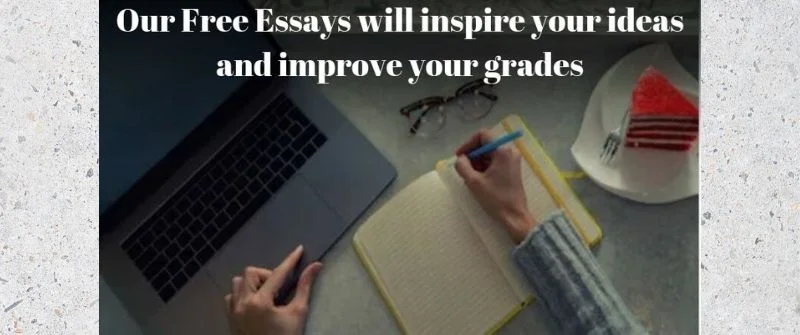
Free Essays and Samples for Beginners
Writing an essay can sometimes be very difficult. There are many problems that a student might face, like lack of time. At times a student has several papers to complete under a given time frame and has to submit the papers before or on the due date.
The papers may not be too complicated. However, deciding whether to write them simultaneously and choosing which one you prefer more could interfere with your writing process and distract your attention from starting to write your paper. Here, you may need an example essay.
We have completely free essays online that are professionally written to give students inspiration, ideas, and essay writing help in citations.

Our essay writers offer original papers in all formatting styles with the right word usage, sentence structure, and grammar.
Why Completely Free Essays Online are helpful
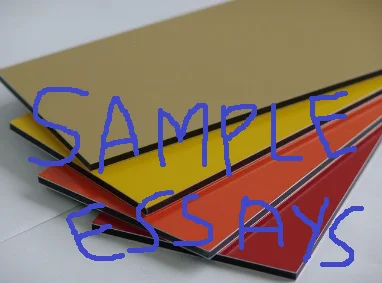
You doubt whether you`ve made the right decision and choice of paper or whether you ought to have done the other paper.
All these thoughts hinder your concentration on essay writing. Another issue is writing essays with topics that you don’t understand fully.
As a student, understanding writing is essential in your studies will help you seek helpful resources.
It takes a lot of time to decide what you want to do, like creating an outline, conducting research, and writing the draft.
However, even after you have written a draft, you may wonder whether the draft you have written is what is required of you.
However, there are people more experienced in academic writing than you are, so you can request them for help in writing essays. They will write and produce your paper in less than 6 to 12 hours.
Sample essays are helpful to students because they are written in the desired topic style. Also, an annotated bibliography, citation list, and complete literature review are given according to the essay’s subject material.
Some of the available free essays online were at one time submitted by writers and students as well as published by famous writers from around the globe.
Order an Excellent Essay today!
Let us help you get that A in your next assignment. Place your order today, and you will enjoy the benefits.

Professionally Done free Sample Essays
A professional writer will guide you by giving you tips on how to make the quality of your paper stand out and also he will notice the mistakes in your essay and point them out to you.
If this is a good option, consider visiting our custom writing service .
There are many online writing services to get sample essays, research papers, and dissertations. However, you ought to use these services carefully.
Imagine an experienced writer agreeing to spend his effort and time writing an essay without getting paid. Sounds unrealistic, doesn’t it? On the contrary, we get both paid and completely free essays as samples.
If you need an essay sample to know how to write an essay, you can download one from our website.
If that is not good enough for you, you can also receive advanced services at a reasonable fee, which includes giving a custom example essay written exclusively for you from scratch.
This means that our writer shall complete your paper on any topic and instructions you have given.
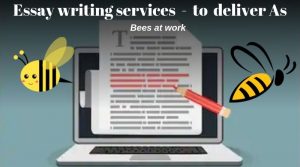
Essay Writing Service with No Plagiarism: Cheap Quality Essay Help

Write My Essay For Me Services – Cheap, original and Confidential
Are completely free Essays Online safe for College Students?
Getting free essay samples and other academic papers has become an increasingly acceptable practice conducted by students from all over the globe.
While you can also buy essays online safely, and requesting free samples is widely available, finding a reputable, safe source to get your papers from can be difficult.
And in some respect, it can be a very dangerous practice.
You can not submit free samples as your work since they have not been custom written for you; they are someone else’s work, and using them will result in 100% plagiarism.
On the other hand, you can not be assured of the quality of the free essay, while if you decide to buy the essay from a reputable company, you are guaranteed quality written work.
This is because professional writers have expertise on the topic you have requested, and the writer will involve you throughout the writing process so that your essay is tailored to the needs of your assignment.

When requesting a free sample online, you want to be at peace with the company and determine if they have a polished business with a simple ordering platform and a strong presentation.
For instance, if you want a history essay on Mesopotamia, get exactly that. You need to get the exact paper to learn from samples, not something similar.
However, do not use the free samples as your work but use them as a guide to help you write your essay. If you cannot, let our essay writing examples help you as a guide to doing it.
Hence you will have your question answered. Yes, free online essays for college students are safe, depending on where you get them and how you use them.
Let your paper be written by a Team
A team avoids plagiarism and has checks and balances to guarantee a quality and ORIGINAL paper
Use the free essay writing examples to get ideas
We offer them to give you inspiration and ideas. You are given an essay to write, a research paper, or a term paper for the first time; you may feel intimidated. However, this is a normal feeling for final-year and first-year students.
The best way of overcoming this feeling is by using essay or paper samples as writing guides. We know the predicaments of most students when they have been asked to write a paper or essay.
Our goal is to make completing academic writing tasks easy as a piece of cake. That is why we give examples of research papers and essays that students may use at all academic levels.
Our database contains various sample term papers, research papers, and essay paper samples, which you may read for free. However, do not copy and paste the samples to be on the safe side.
Think Twice before Using Free Essays as Samples
Our sample essays and papers are important to students who want to complete their writing assignments timely and efficient. You may be in college, university, or high school; we have the best sample for you.
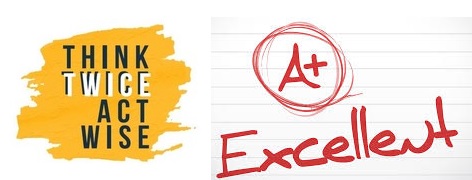
Some university and college departments keep their previous student’s work, which includes research papers, term papers, and essay examples.
You may go through them before writing your essay or paper for inspiration. This will help you solve some of the academic writing problems you may be having.
However, if your college or university does not have a library for such work, worry not. Use our free essay sample collection as well as samples of research papers as guides to your writing.
When you read our samples, you will get inspiring ideas on picking your essay or paper topic, composing a thesis statement, and outlining your paper.
These samples give you good ideas for writing your paper’s body and introduction. You also learn how to move from one paper section to another. We always have a sample for you despite your academic level or field of study.
100% Free Essay Writing Samples
When browsing the web, you may find many essay samples; free essays are very helpful. When going through them, you will learn how to format your papers correctly in various reference styles.
However, knowing how to use them appropriately is important to benefit from essay samples. Online essay examples should be used only for research purposes.
You may request free essay samples to understand how you will organize your writing. If not, they will ruin your reputation, and if you use them wrongly, you won’t get good grades in your subjects.
The purpose of college essay samples is to provide tips on writing college essays in a specific reference style. Hence you should never copy the content given by online essay samples.
Get expert Sample Essays Today
The bottom line is that free essay samples are all over the web and are safe to use if used correctly. However, please order a writer’s service if you want non-plagiarized and untraceable essays.
You can visit our sample page and download our example essays for professional high-quality, completely free essays online. This will take your writing to the next best level as you get good grades through the inspiration you will get from our free samples.
Instead of free essays, get an original one
Get an essay that you own and one customised for you and you alone.
Make your Order

Jessica Kasen is experienced in academic writing and academic assistance. She is well versed in academia and has a master’s degree in education. Kasen consults with us in helping students improve their grades. She also oversights the quality of work done by our writers.
Related posts

Overcoming the feeling and fear of writing essays
Overcoming the Feeling and Fear of Writing Essays

Spaces between Paragraphs in an Essay
How Many Spaces between Paragraphs in an Essay

Double Space an Essay
Should You Double Space an Essay: When and When Not To
Customer Reviews


IMAGES
VIDEO
COMMENTS
Writing an essay is a 6-step process. Step 1. Decide on your main point and write it down. You could be in one of the following situations: Your teacher or professor gave you a prompt, and you have to follow it. You are allowed to make up your own essay topic. You must pass a writing test and are practicing.
An example of a basic essay outline might be: - Introduction: Introduce the topic and thesis statement. - Body: Three paragraphs, each covering a different aspect of the argument. - Conclusion: Summarize the main points and restate the thesis.
Example of a Great Essay | Explanations, Tips & Tricks. Published on February 9, 2015 by Shane Bryson . Revised on July 23, 2023 by Shona McCombes. This example guides you through the structure of an essay. It shows how to build an effective introduction, focused paragraphs, clear transitions between ideas, and a strong conclusion.
Come up with a thesis. Create an essay outline. Write the introduction. Write the main body, organized into paragraphs. Write the conclusion. Evaluate the overall organization. Revise the content of each paragraph. Proofread your essay or use a Grammar Checker for language errors. Use a plagiarism checker.
3. Create a mysterious atmosphere. "Moths that fly by day are not properly to be called moths; they do not excite that pleasant sense of dark autumn nights and ivy-blossom which the commonest yellow-underwing asleep in the shadow of the curtain never fails to rouse in us.". - Virginia Woolf - Death of the Moth. 4.
Below, we provide some student samples that exhibit the key features the most popular genres. When reading through these essays, we recommend paying attention to their. 1. Structure (How many paragraphs are there? Does the author use headers?) 2. Argument (Is the author pointing out a problem, and/or proposing a solution?) 3.
Intriguing ways to start an essay. There are many different ways to write an essay introduction. Each has its benefits and potential drawbacks, and each is best suited for certain kinds of essays.Although these essay introductions use different rhetorical devices and prime the reader in different ways, they all achieve the same goal: hooking the reader and enticing them to keep reading.
Writing an essay can be a daunting task for many students, but it doesn't have to be. In this blog post, you will learn some simple tips and tricks on how to write an essay, from choosing a topic to editing your final draft. Whether you need to write an essay for school, work, or personal interest, this guide will help you improve your skills and confidence.
The sample essays in this course are aimed at that level. However, the principles discussed in the lessons are practical for writers of any level. If you're at a lower level, do the best you can. If you are a more advanced writer, feel free to write more developed and complex essays than the ones in the examples. Just make sure you follow the ...
The five-paragraph essay format is a guide that helps writers structure an essay. It consists of one introductory paragraph, three body paragraphs for support, and one concluding paragraph. Because of this structure, it has been nicknamed the "hamburger essay," the "one-three-one essay," and the "three-tier essay.".
Descriptive Essays: Comparison and Contrast Essays: Process Analysis Essays: Exemplification Essays: Narrative Essays: Analogy Essays: Classification Essays: Cause and Effect Essays: Argument and Persuasion Essays: Definition Essays
Choose a research paper topic. Conduct preliminary research. Develop a thesis statement. Create a research paper outline. Write a first draft of the research paper. Write the introduction. Write a compelling body of text. Write the conclusion. The second draft.
Using evidence. Evidence is the foundation of an effective essay and provides proof for your points. For an essay about a piece of literature, the best evidence will come from the text itself ...
Plan and outline your essay: Create a clear outline to provide structure and coherence to your essay. Conduct thorough research: Gather reliable information from credible sources to support your arguments. Develop a strong thesis statement: Craft a clear and concise thesis statement that guides your writing.
Free Essay. Embark on your essay writing journey with our comprehensive guide, rich in diverse essay examples. This guide is crafted to assist students, educators, and writing enthusiasts in mastering the art of essay composition. From structure to style, it covers all facets of essay writing, supplemented with illustrative essay examples for ...
While writing essays, many college and high school students face writer's block and have a hard time to think about topics and ideas for an essay. In this article, we will list out many good essay topics from different categories like argumentative essays, essays on technology, environment essays for students from 5th, 6th, 7th, 8th grades.
Essay samples, your creativity, Studyfy homework help, online proofreading and essay editing service, custom essay, admission essay writing service, and "write paper for me" services are the perfect tools to give you inspiration and help you with unpleasant essays! Free features. The best expert. $10.99. FREE.
SAMPLE ESSAY 1. My Hobby. My favorite hobby is playing drums. I spend a lot of my free time playing drums. I started learning to play drums when I was 9 years old. I played in my school's band. When I was 12, I got a private drum teacher and started to really enjoy playing.
100 IELTS Essay Questions. Below are practice IELTS essay questions and topics for writing task 2. The 100 essay questions have been used many times over the years. The questions are organised under common topics and essay types. IELTS often use the similar topics for their essays but change the wording of the essay question.
Some examples of random word prompts include: Write a story that includes the word "serendipity.". Write a poem that includes the word "nostalgia.". Write an essay that includes the word "perseverance.". Overall, writing prompts are a great way for beginners to get started with writing.
365 Essays for English Learners. 1 America: Land of Opportunity. 2 The Fourth of July. 3 The U.S. Federal Government. 4 Christmas: A Holiday of Traditions. 5 New Year's Day: A Holiday of New Beginnings. 6 Martin Luther King Jr Day: To Remember a Civil Rights Leader. 7 Valentine's Day: A Holiday of Love and Friendship.
The purpose of college essay samples is to provide tips on writing college essays in a specific reference style. Hence you should never copy the content given by online essay samples. Get expert Sample Essays Today. The bottom line is that free essay samples are all over the web and are safe to use if used correctly. However, please order a ...
We will also provide you with a thorough Plagiarism report by the Turnitin software which will ensure the originality of the draft. You are free to revise your draft with us till you are contented with the subject matter. 100% Success rate. Essay, Research paper, Coursework, Powerpoint Presentation, Case Study, Discussion Board Post, Term paper ...